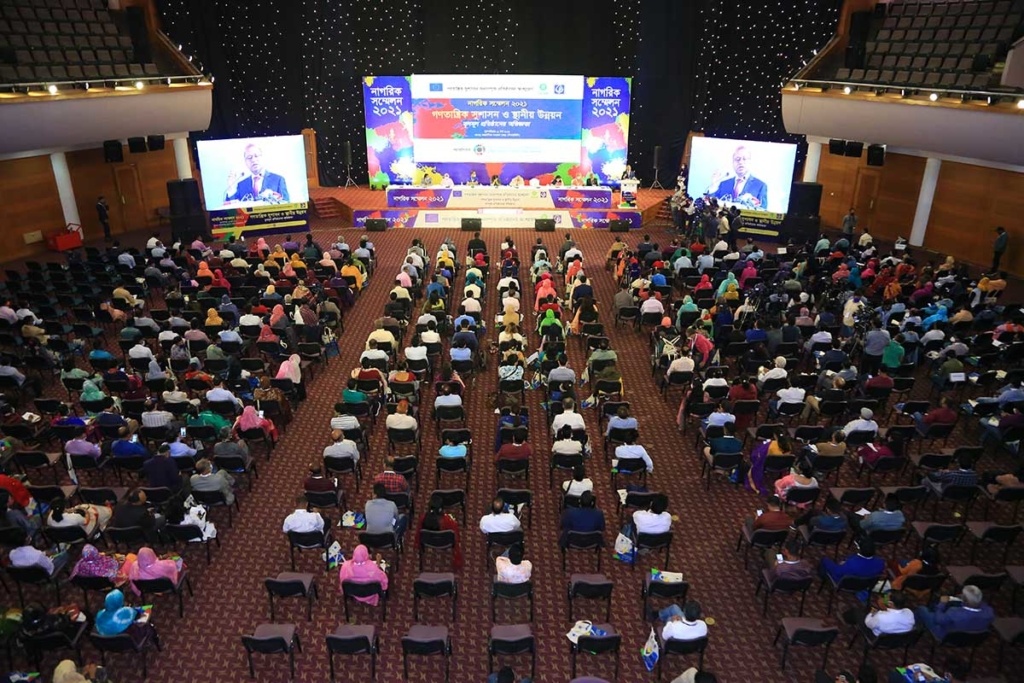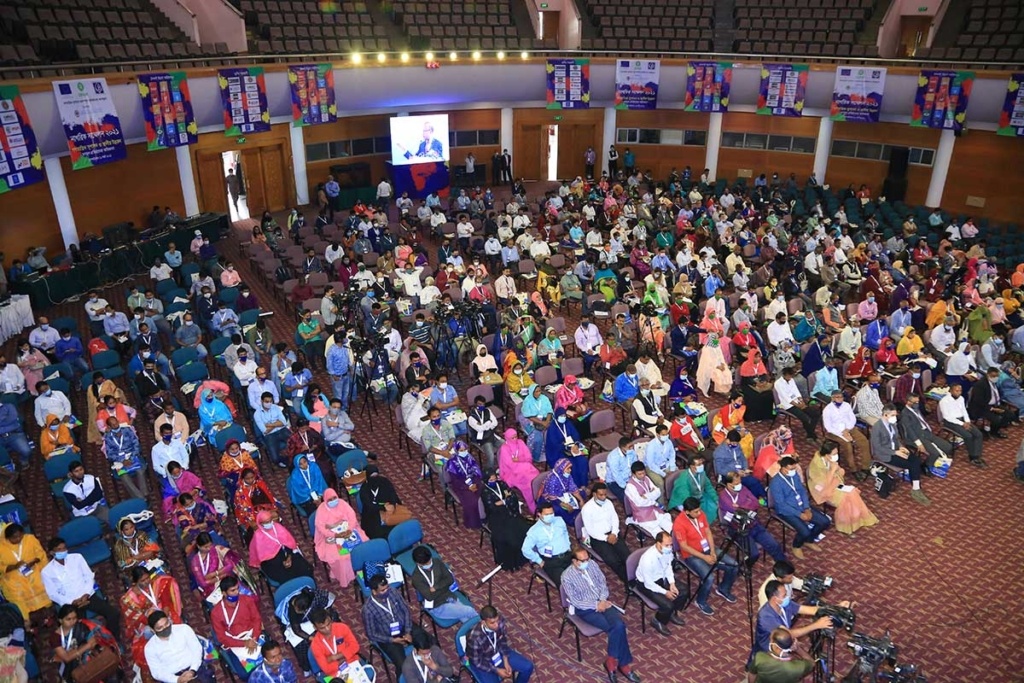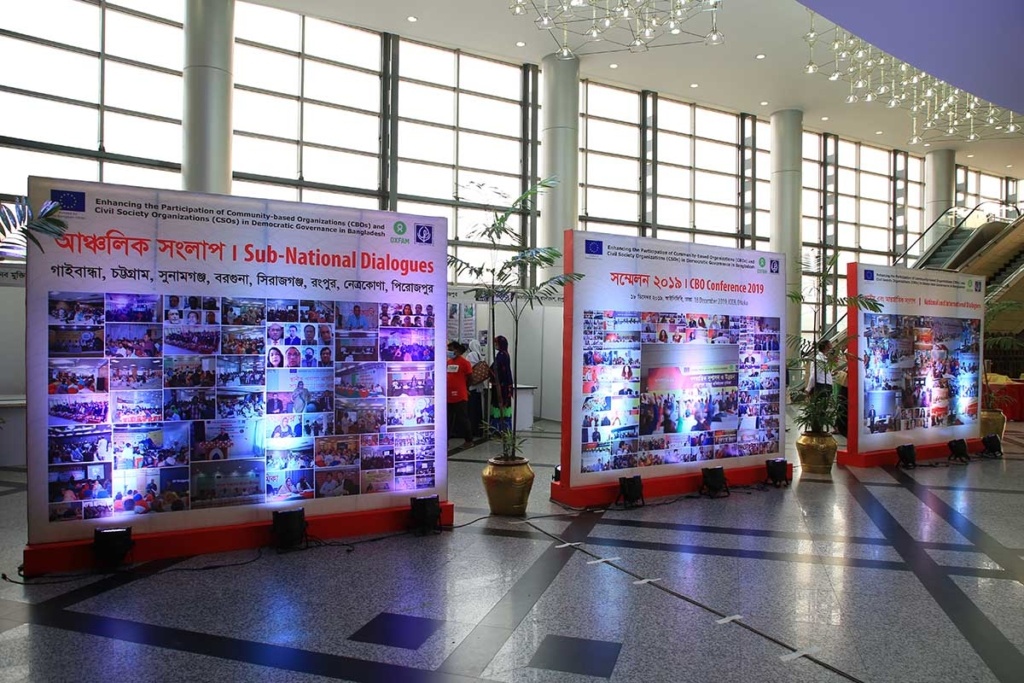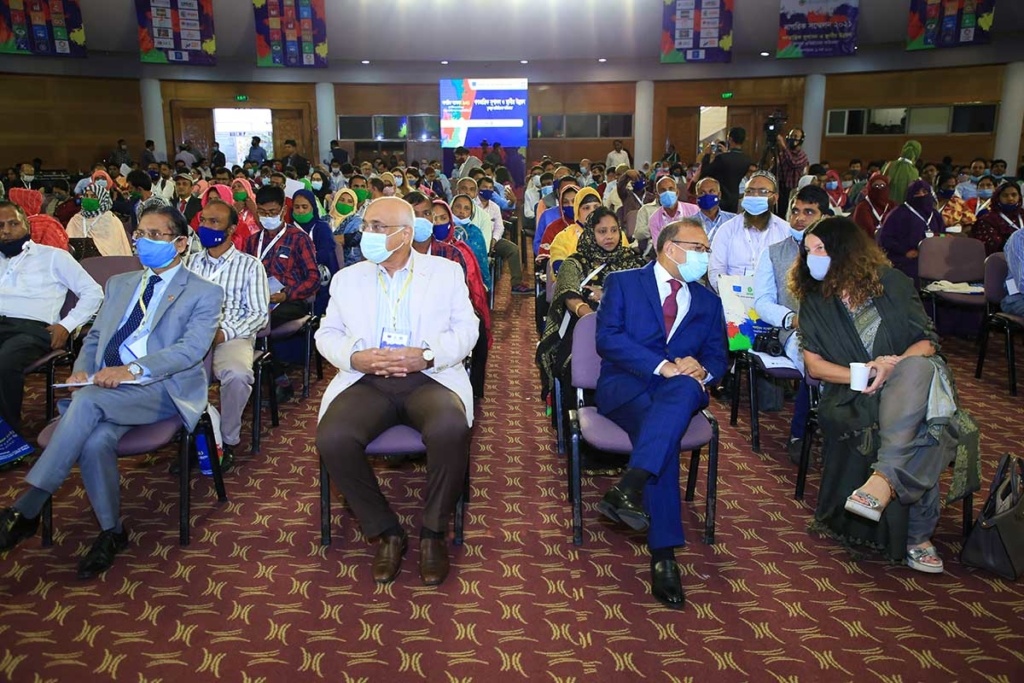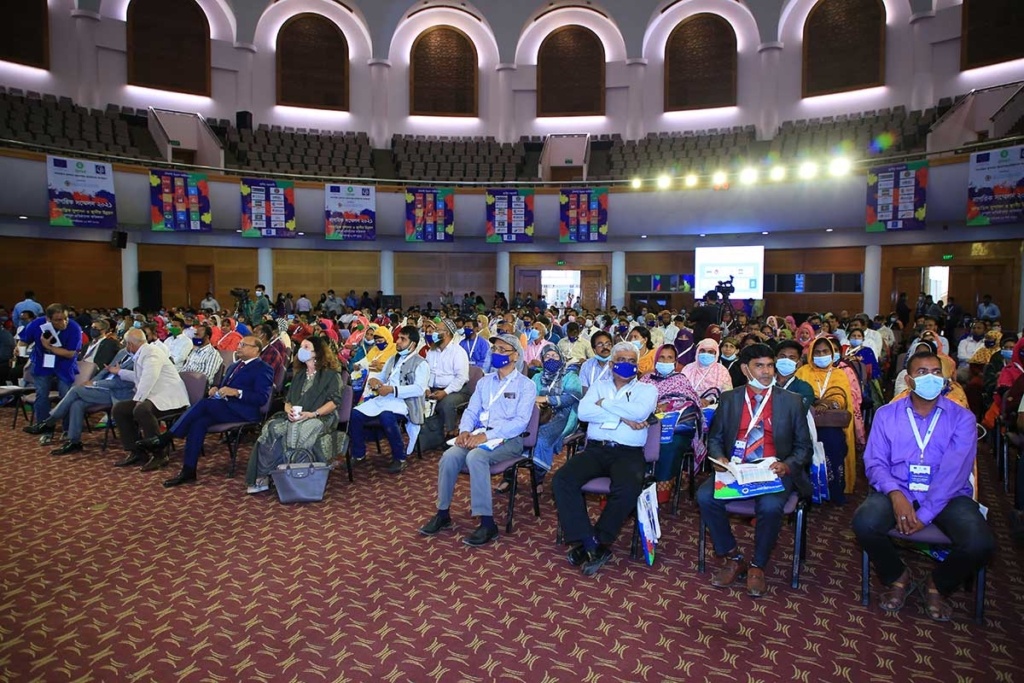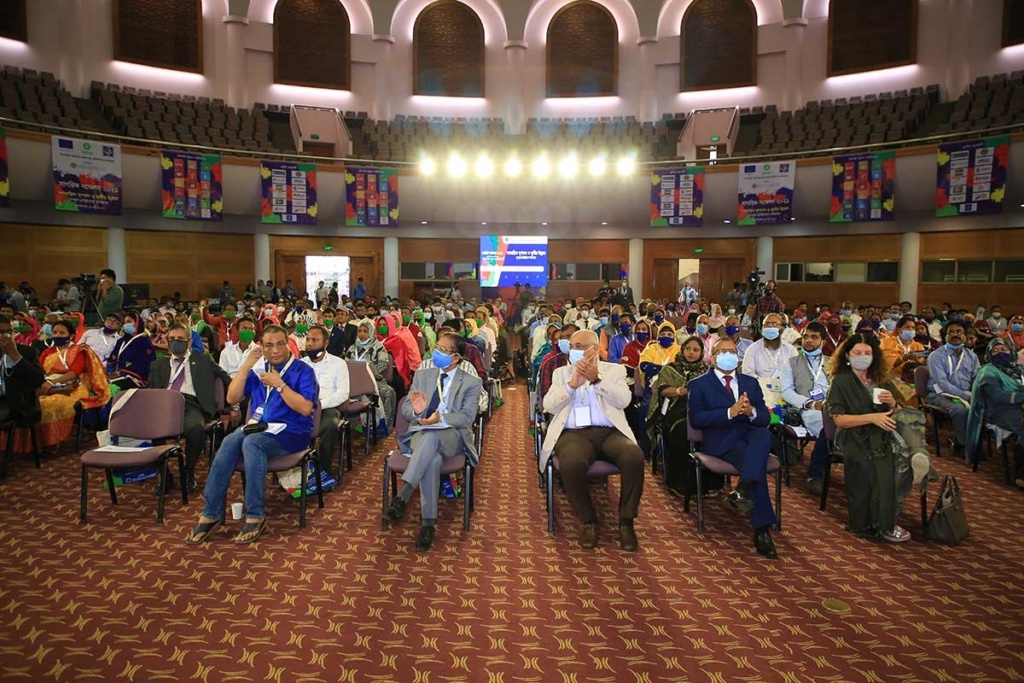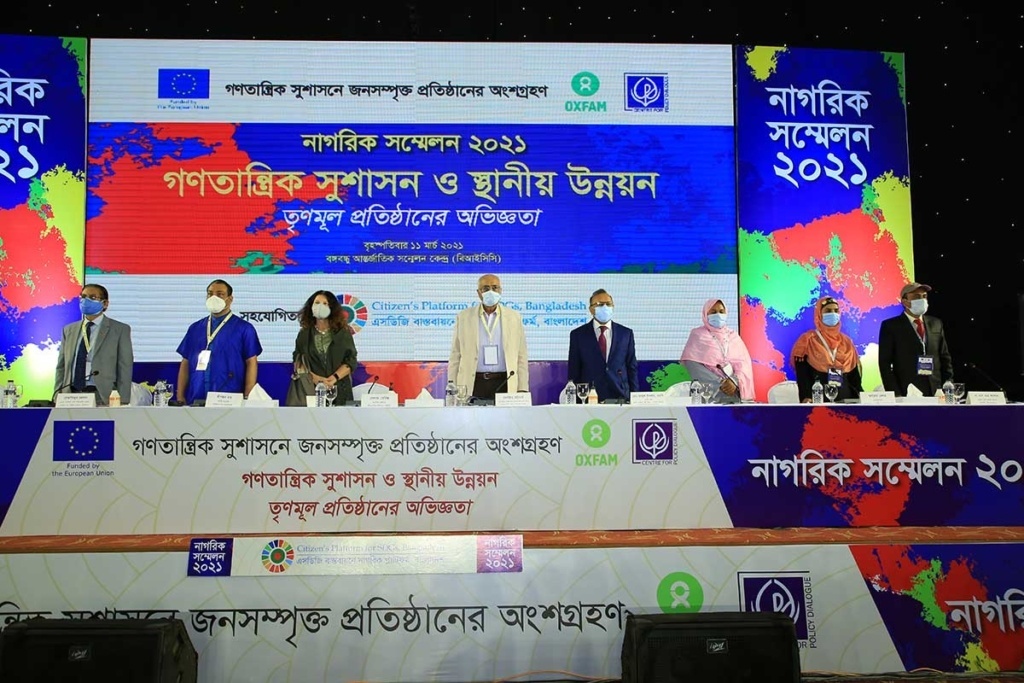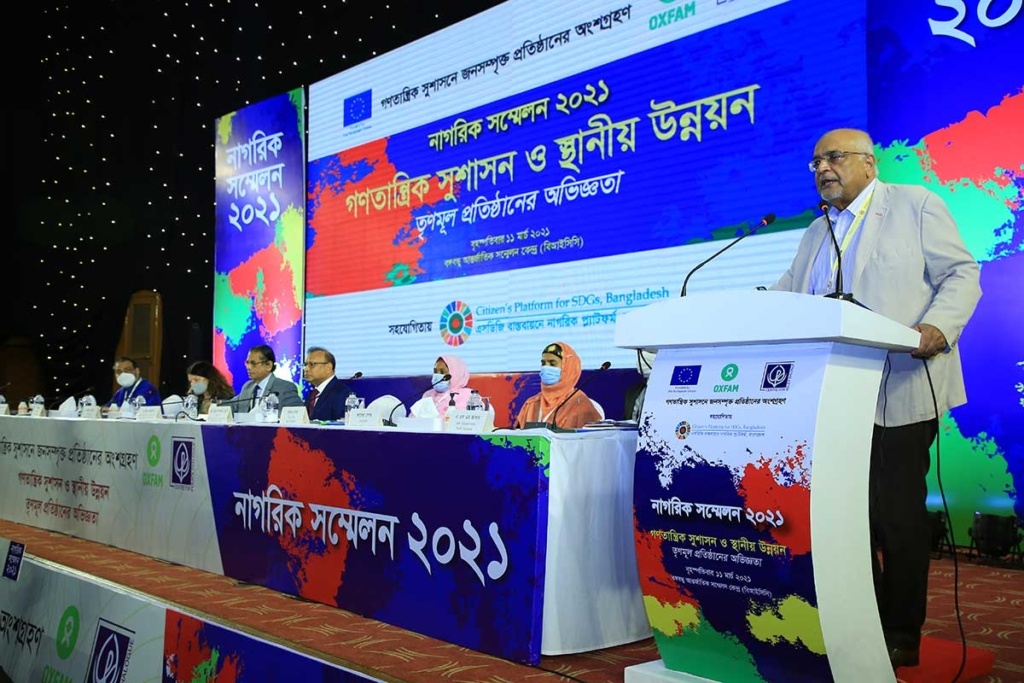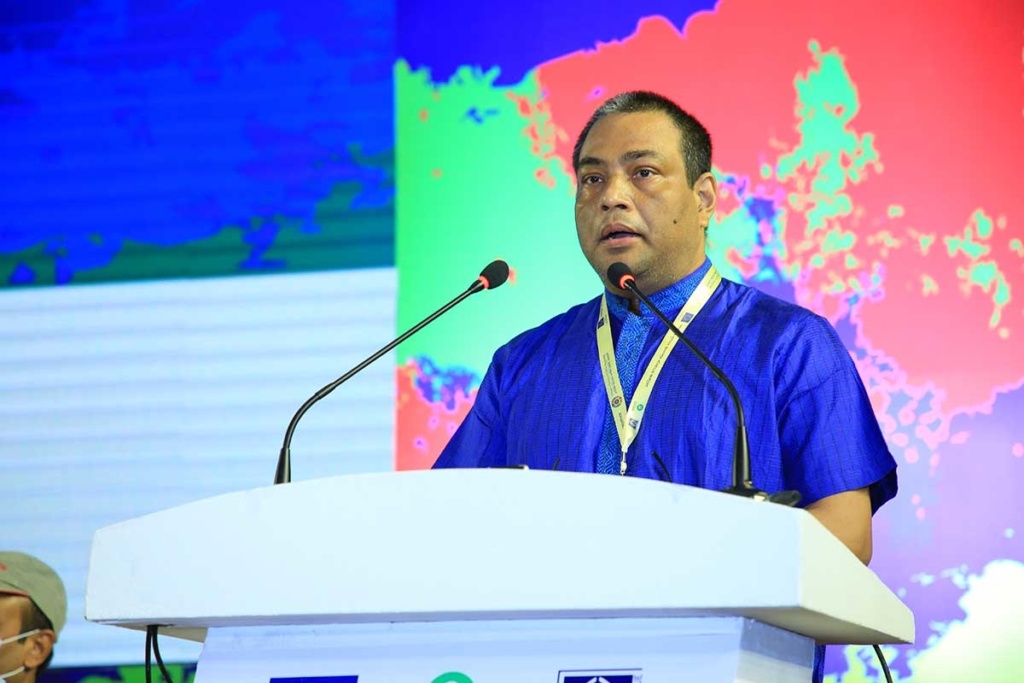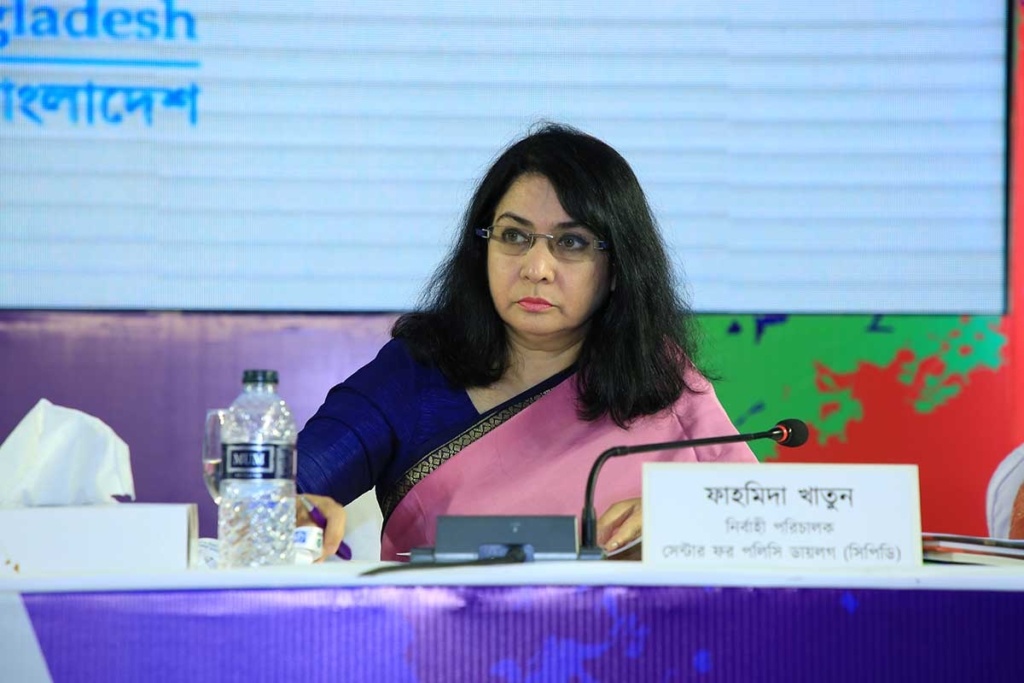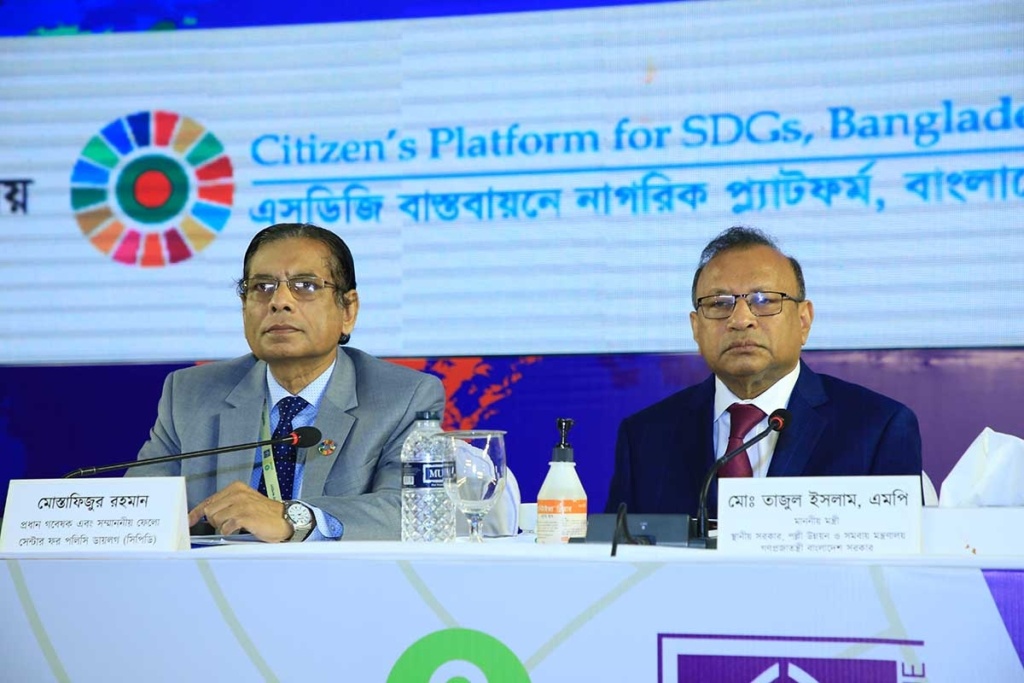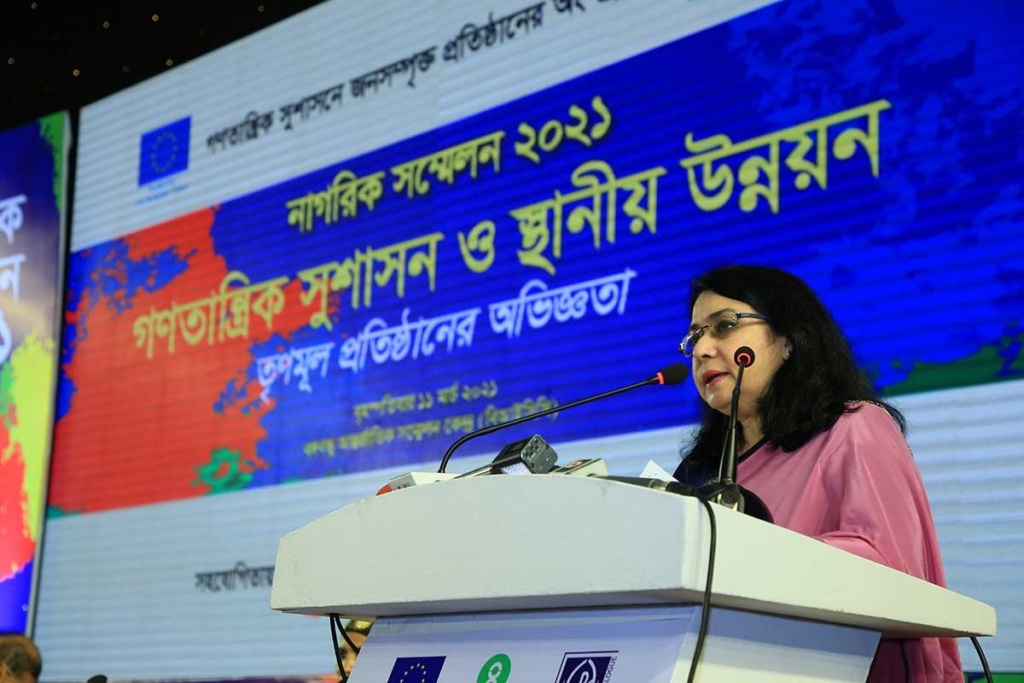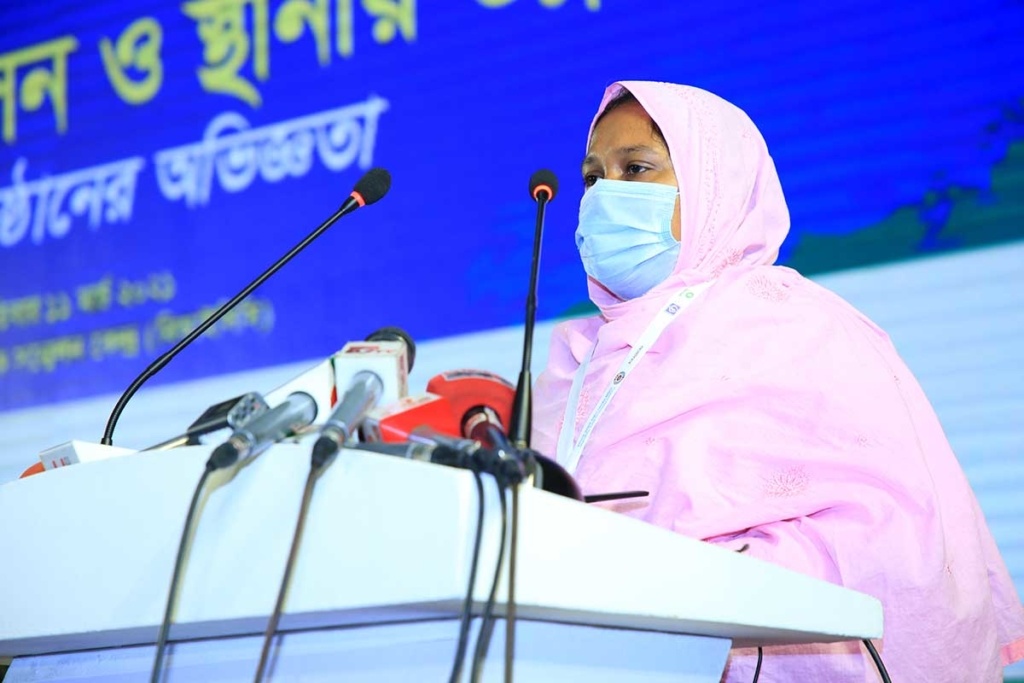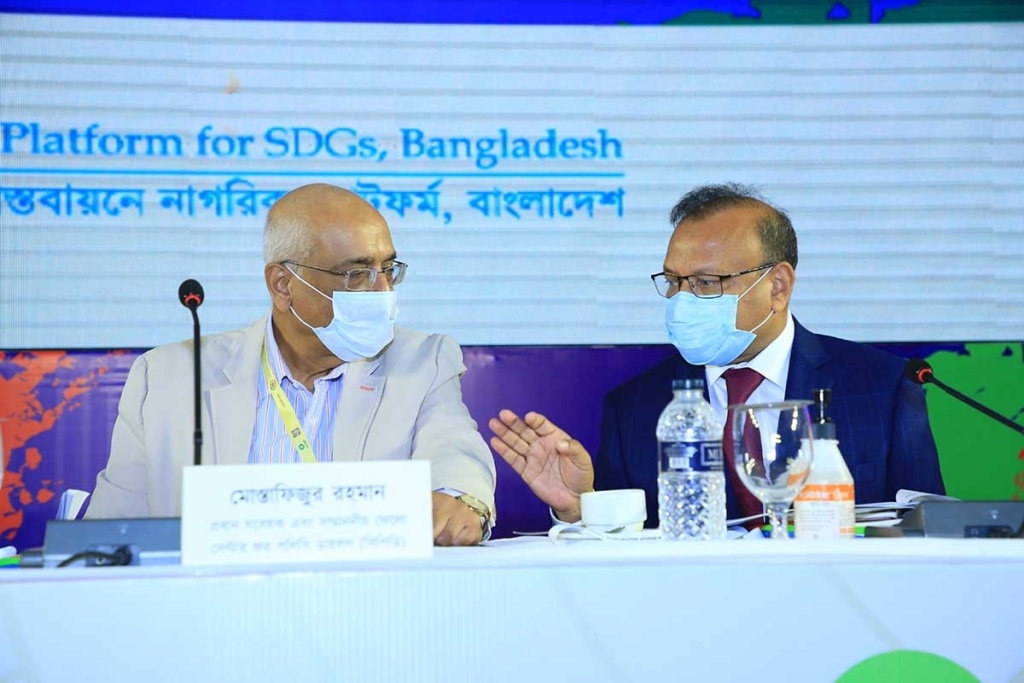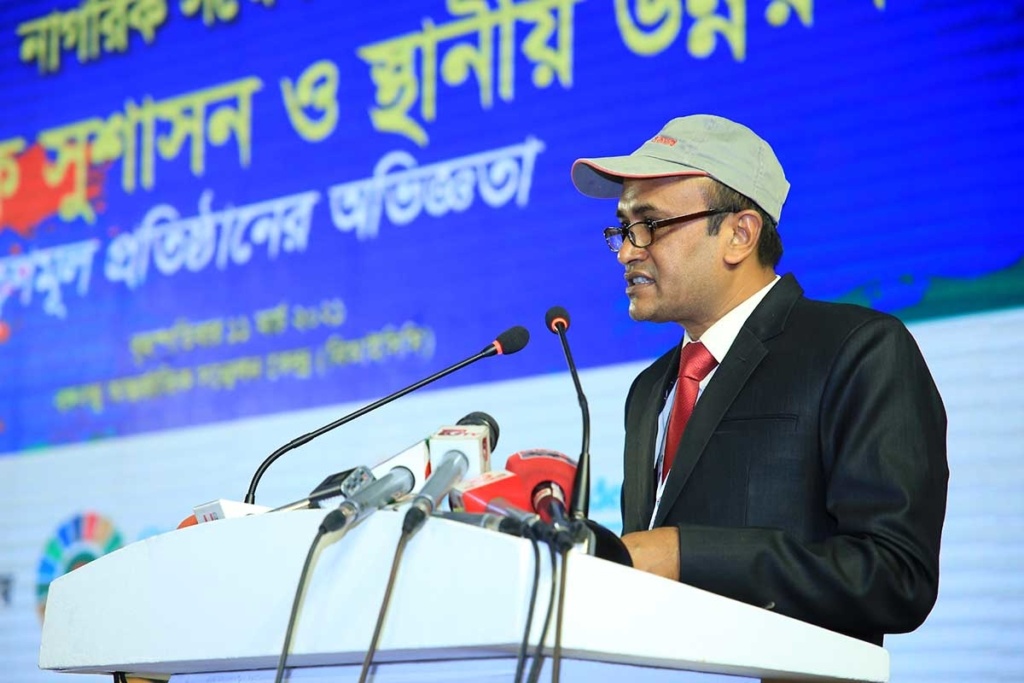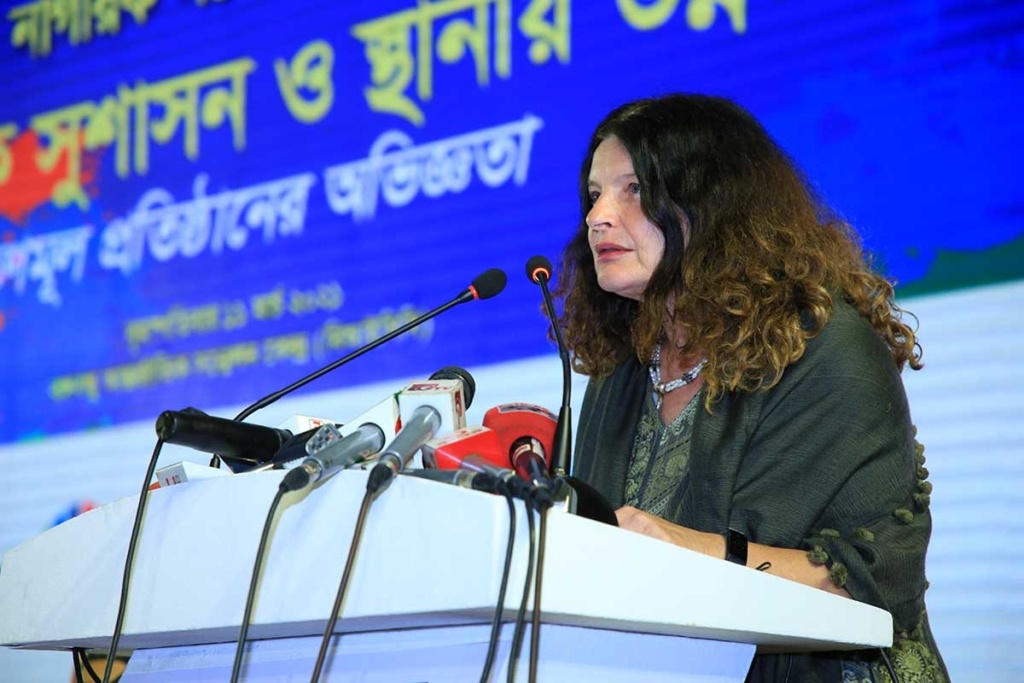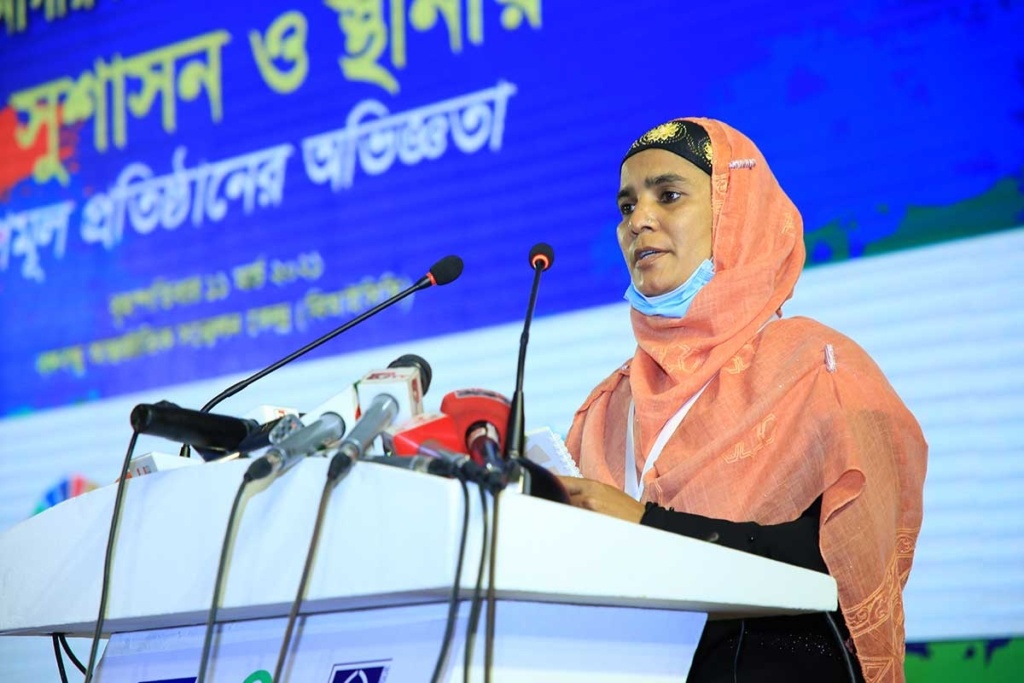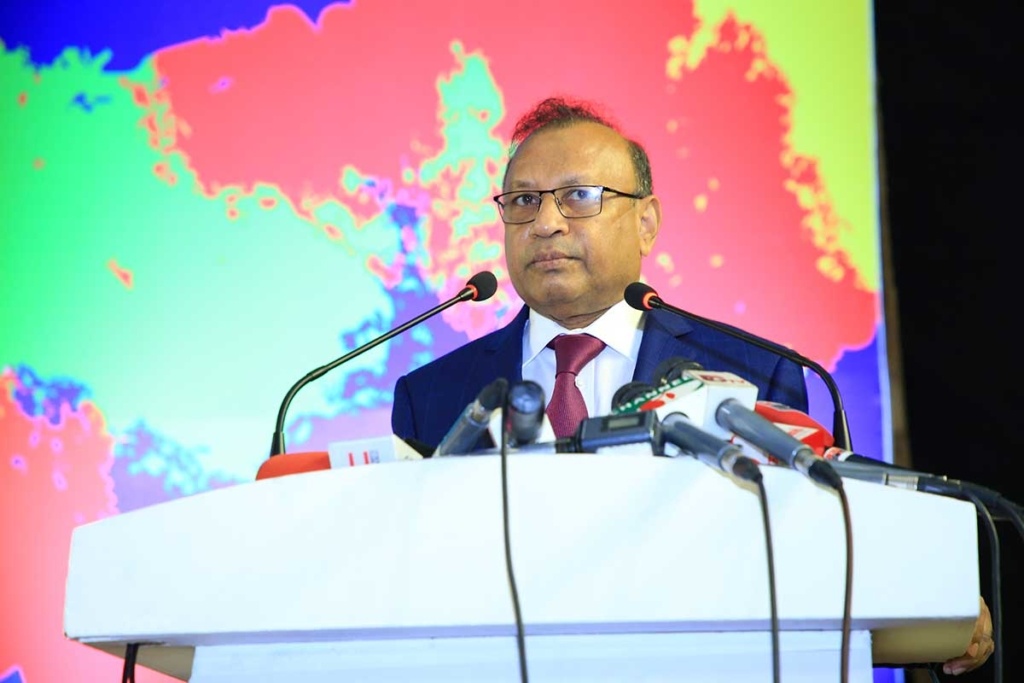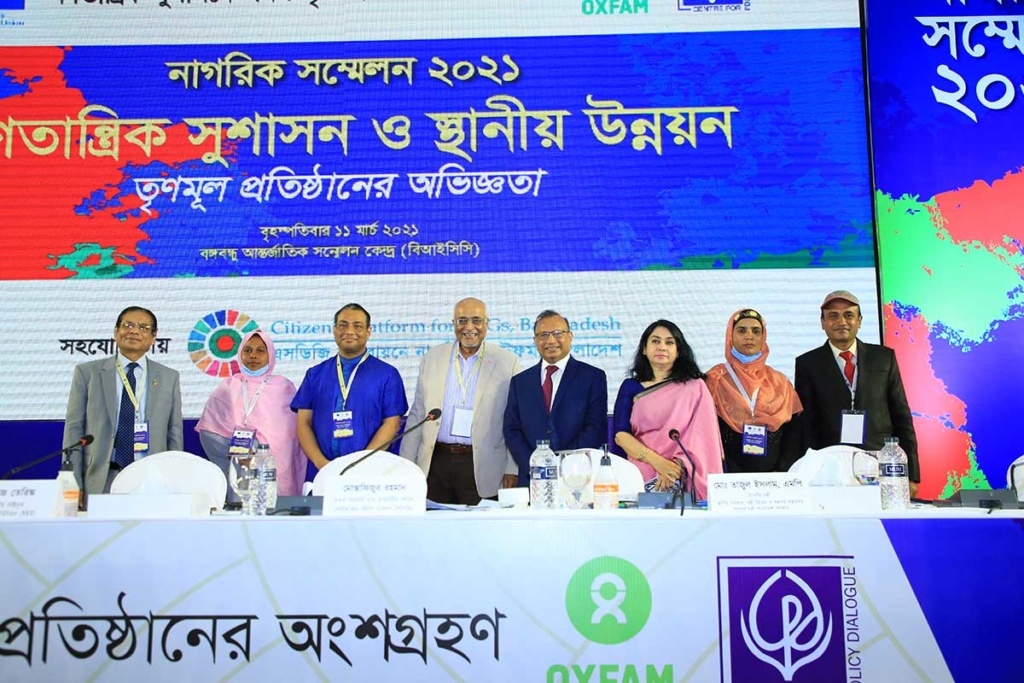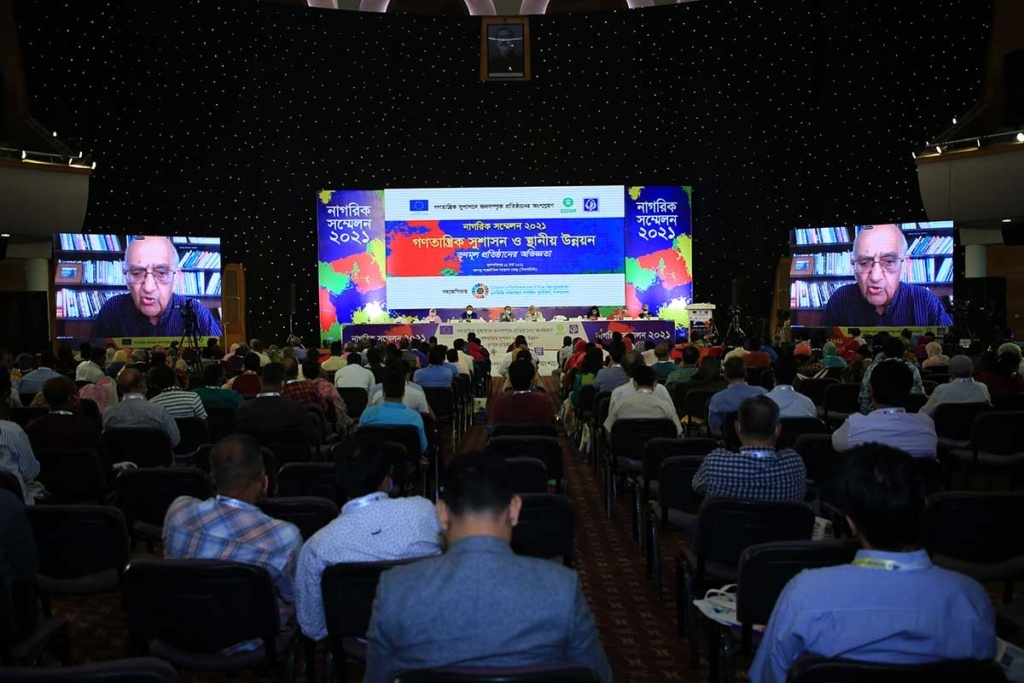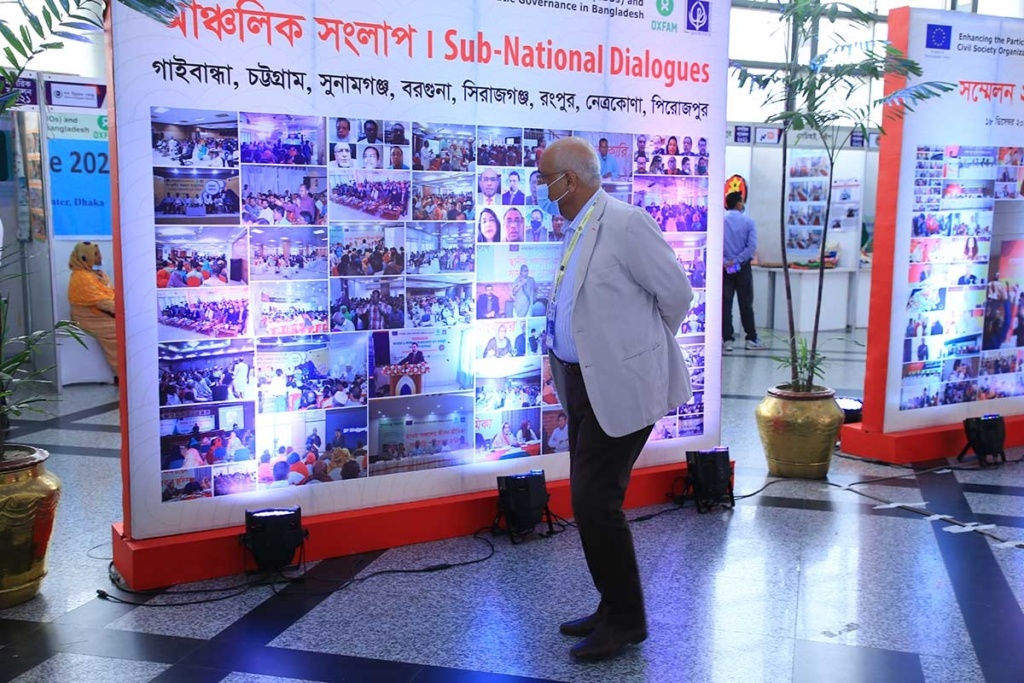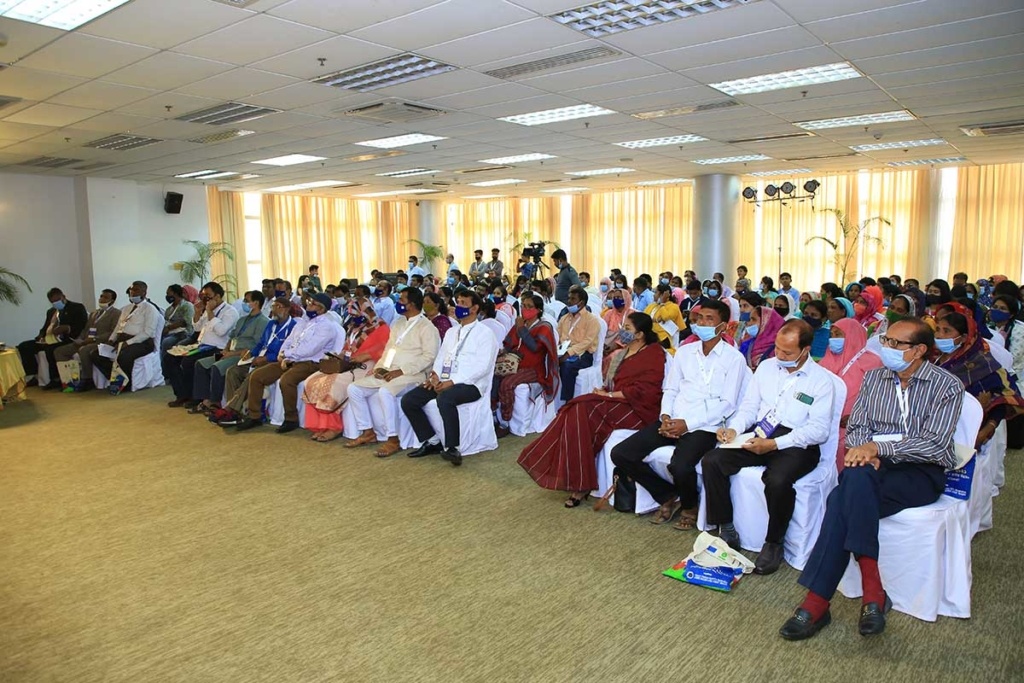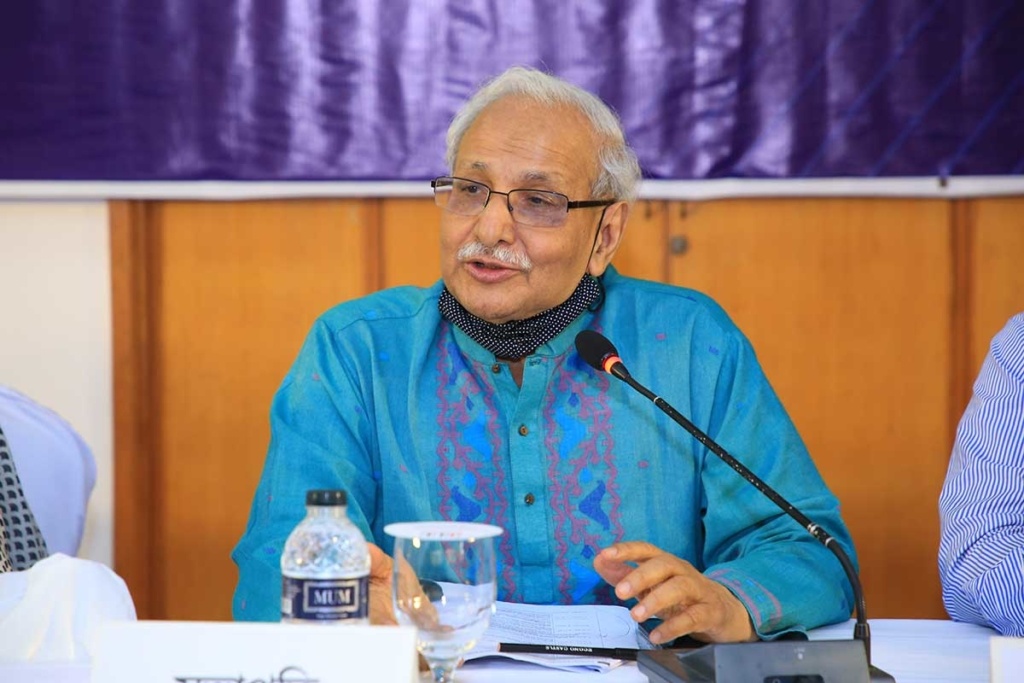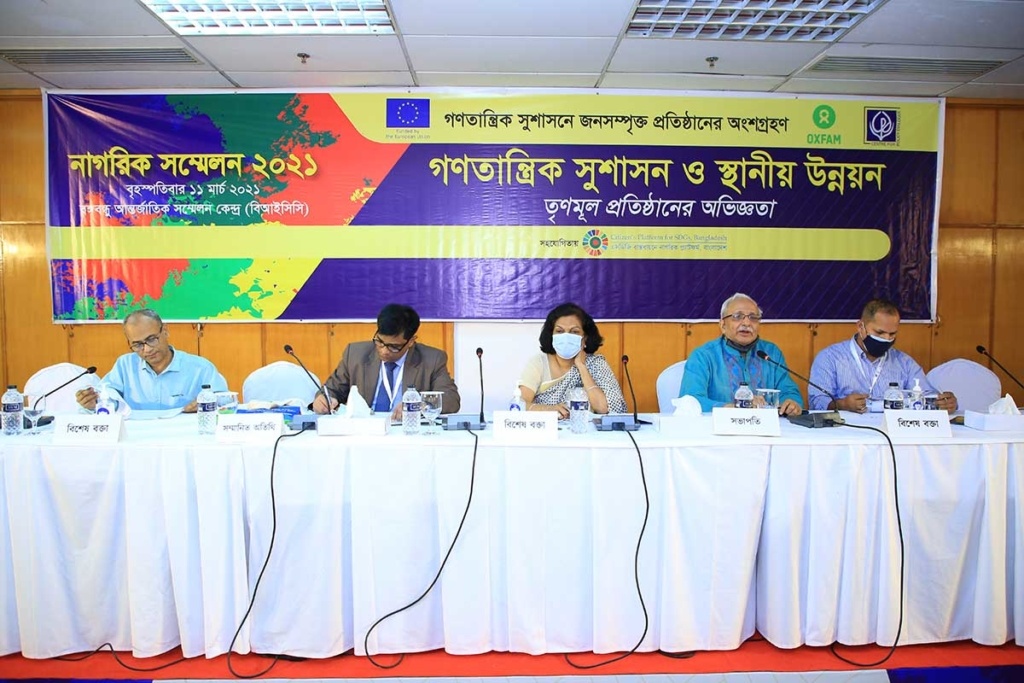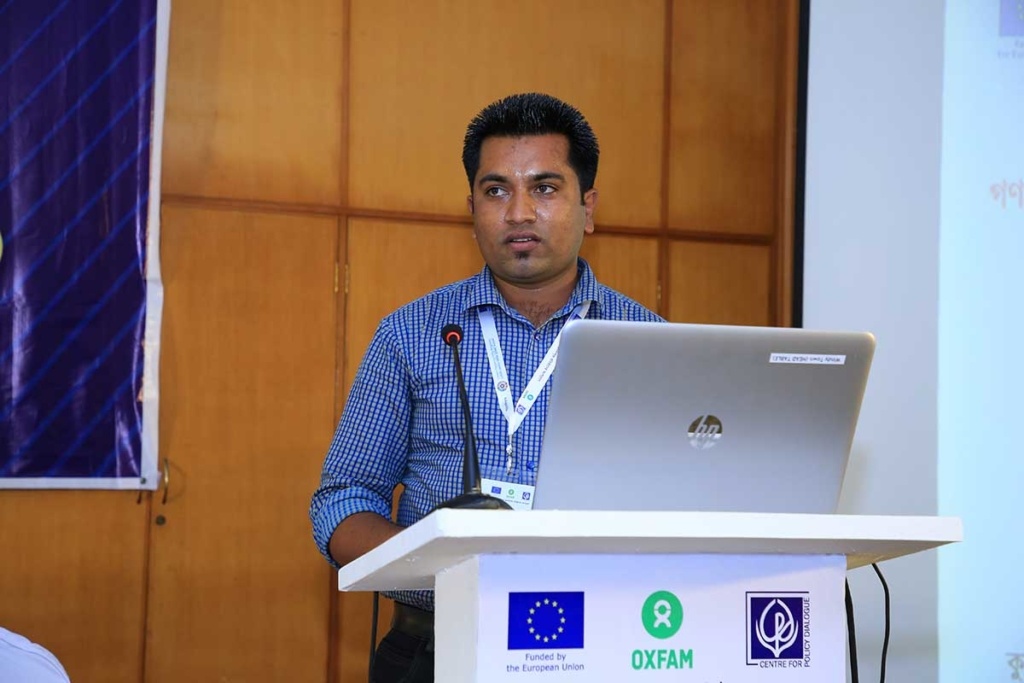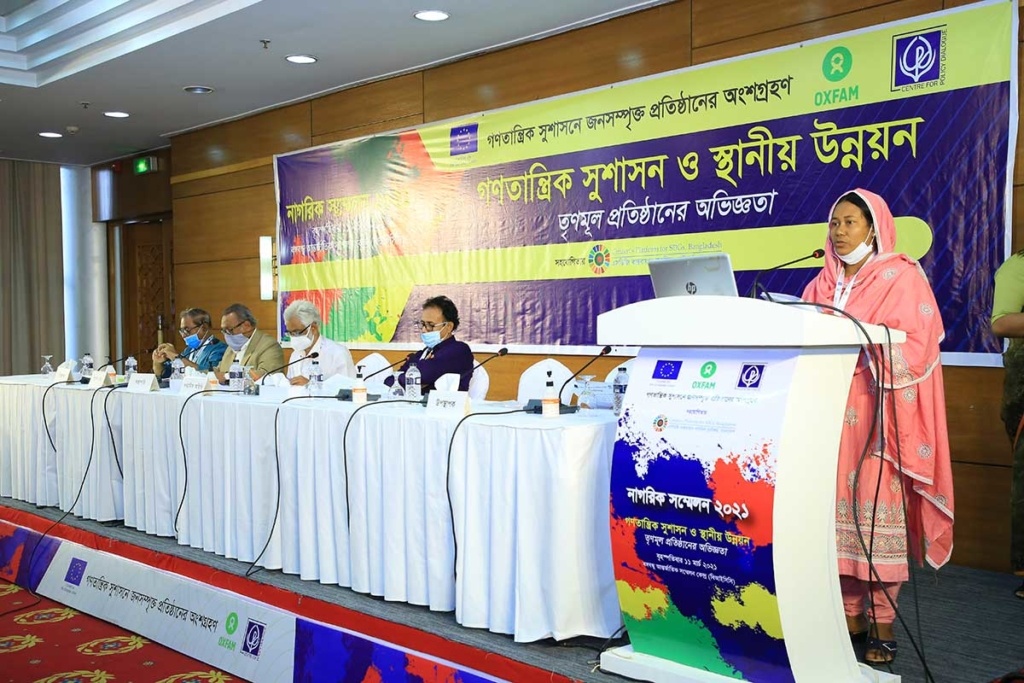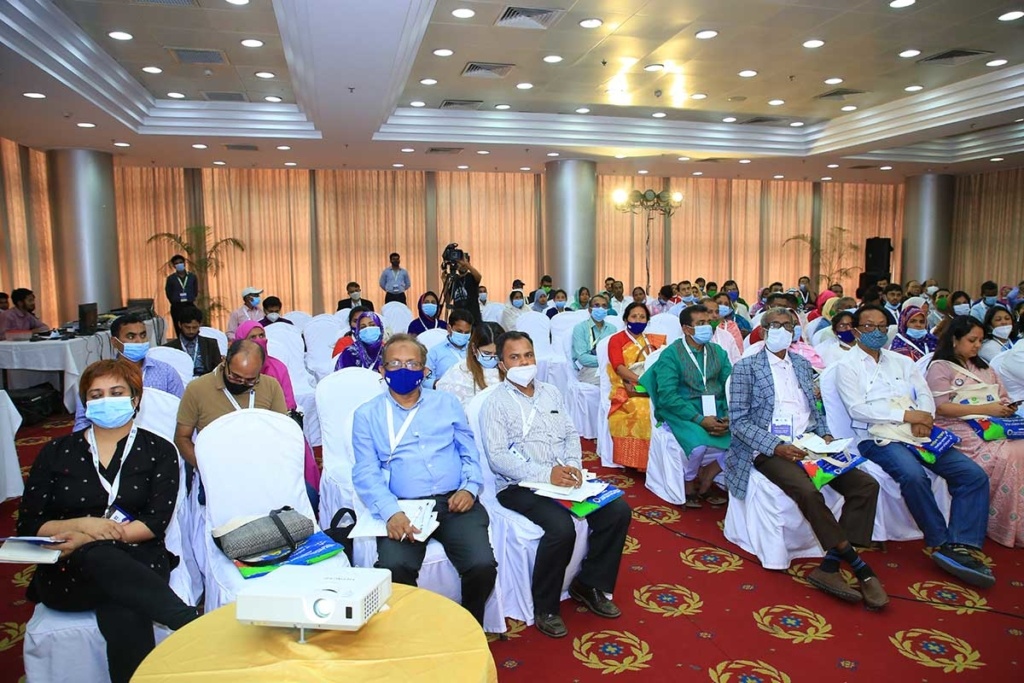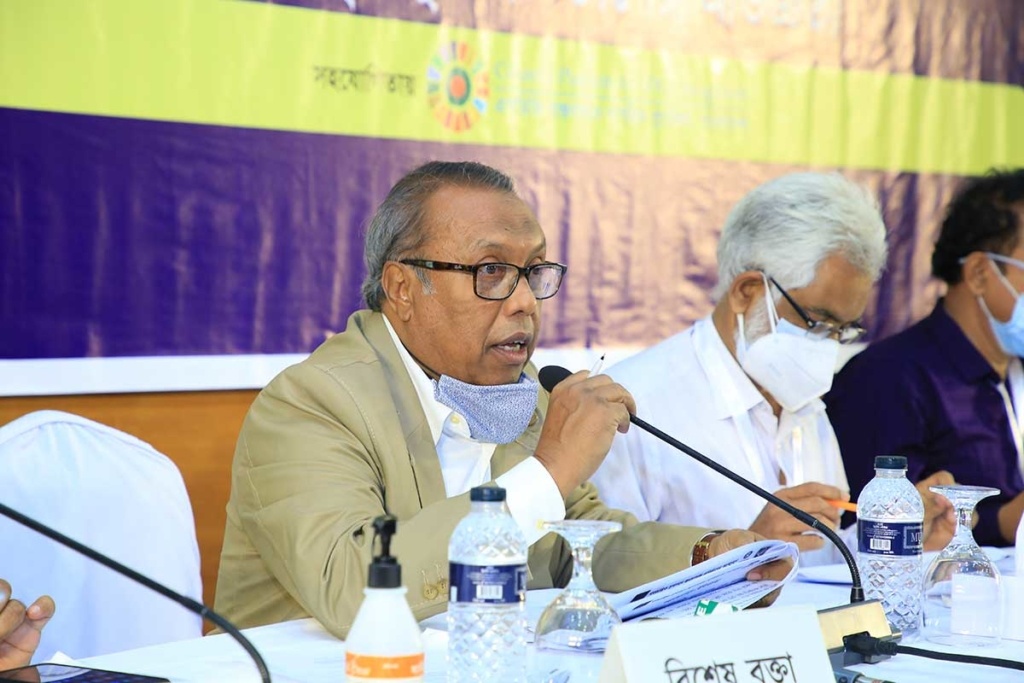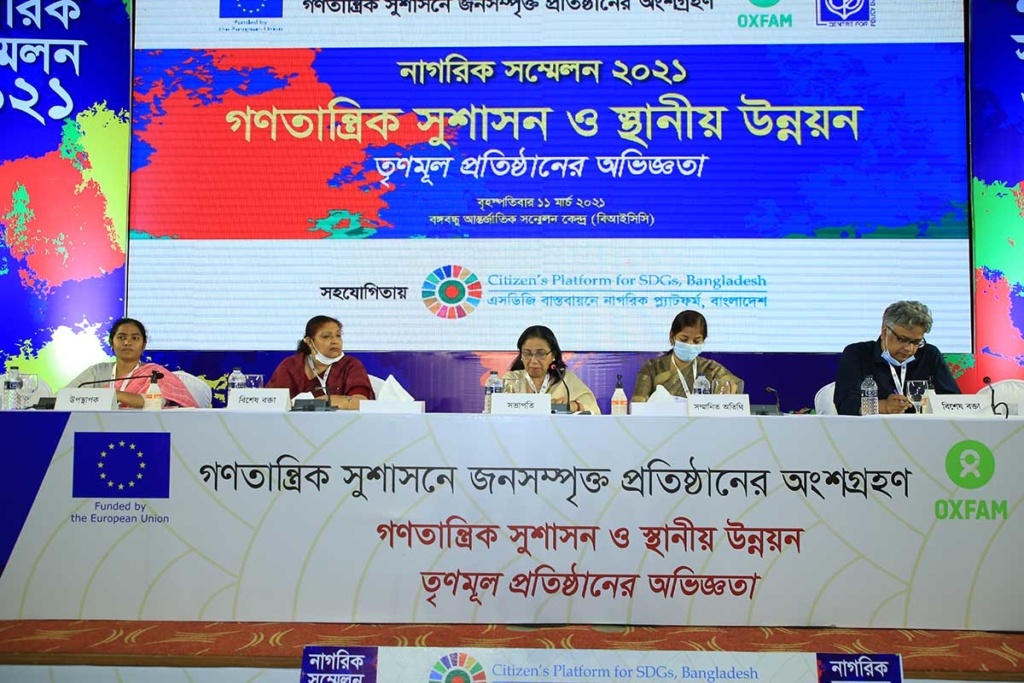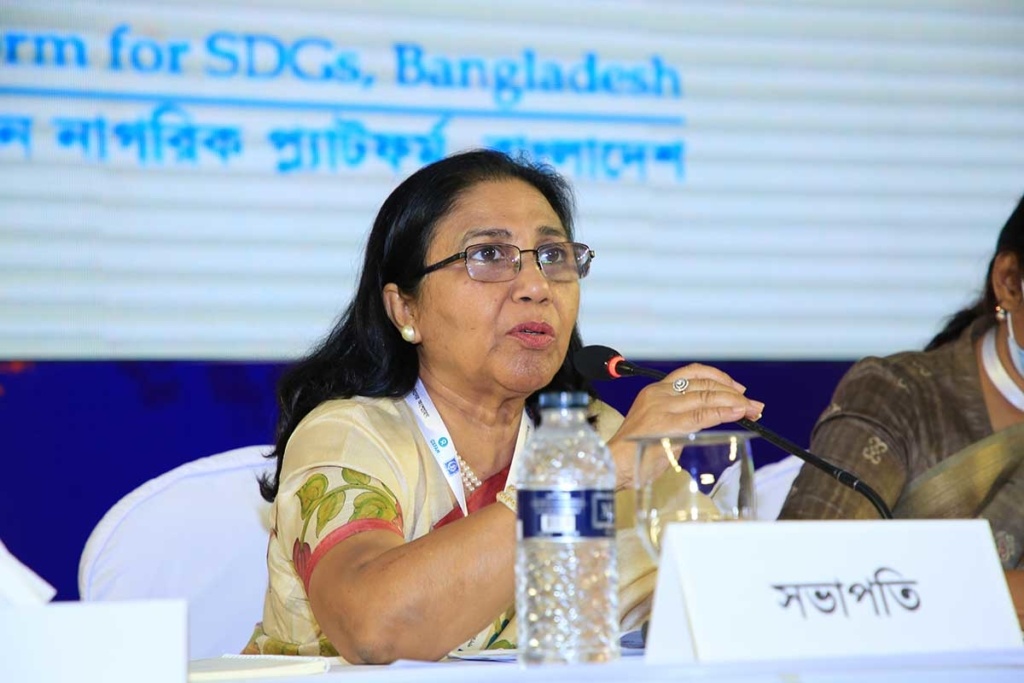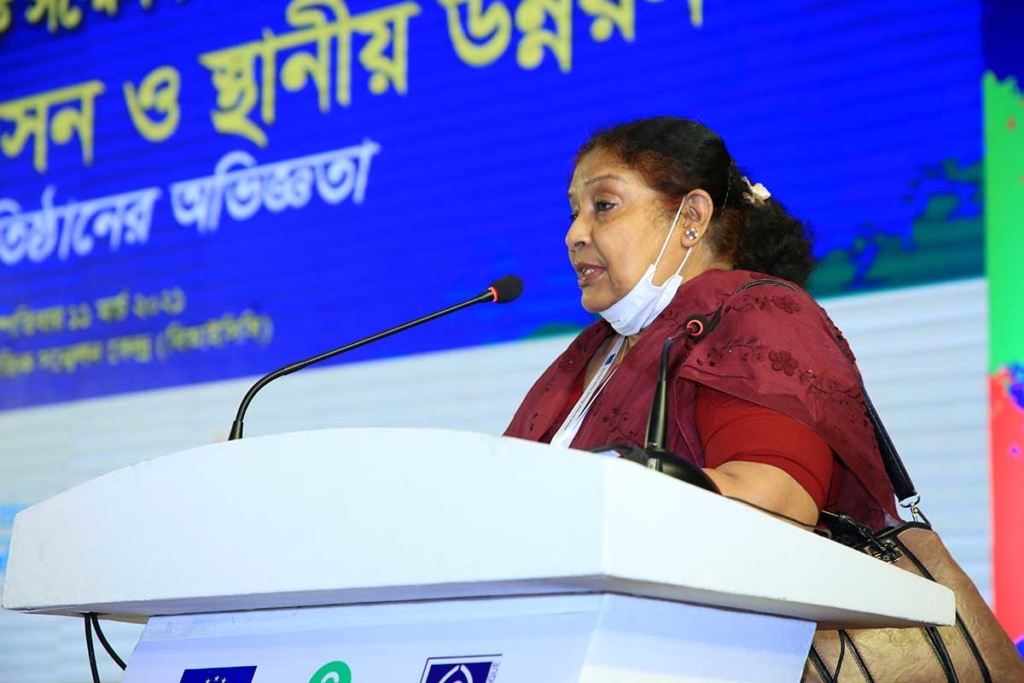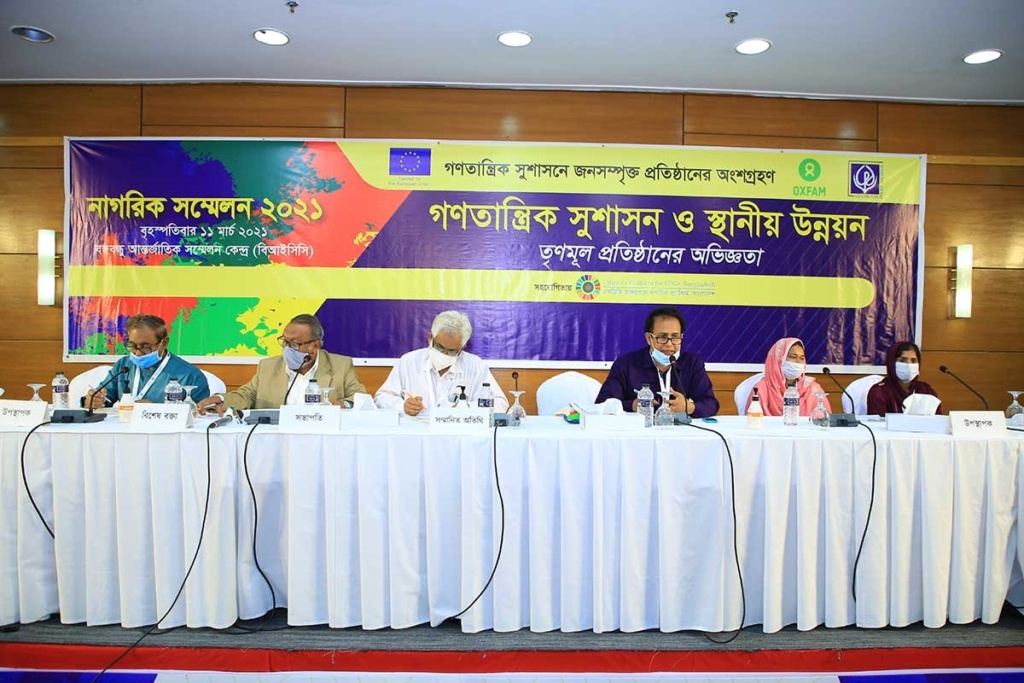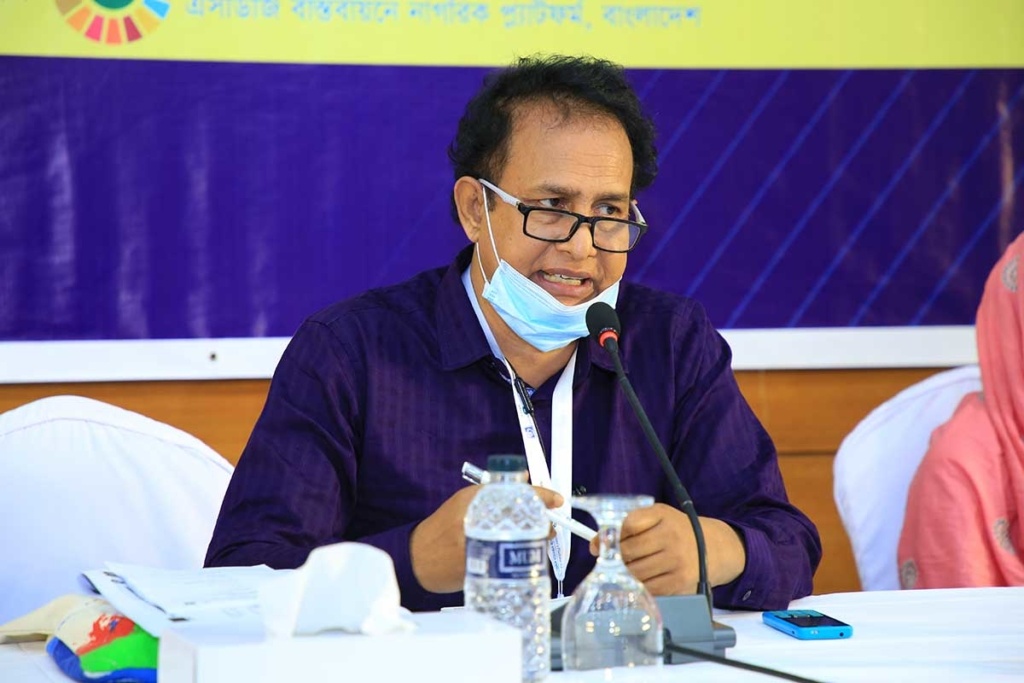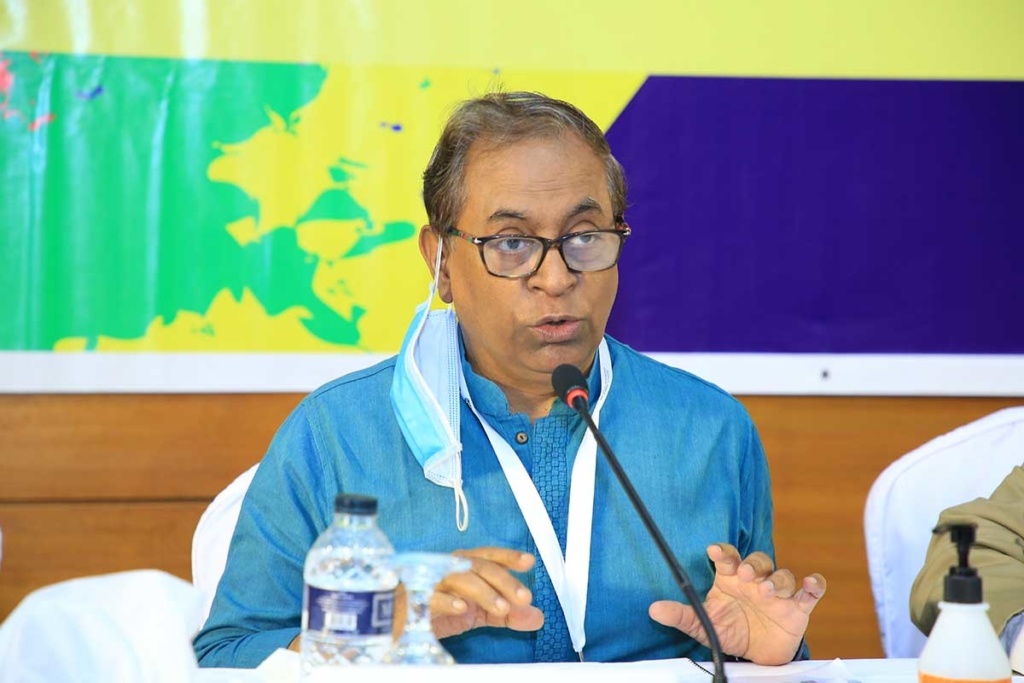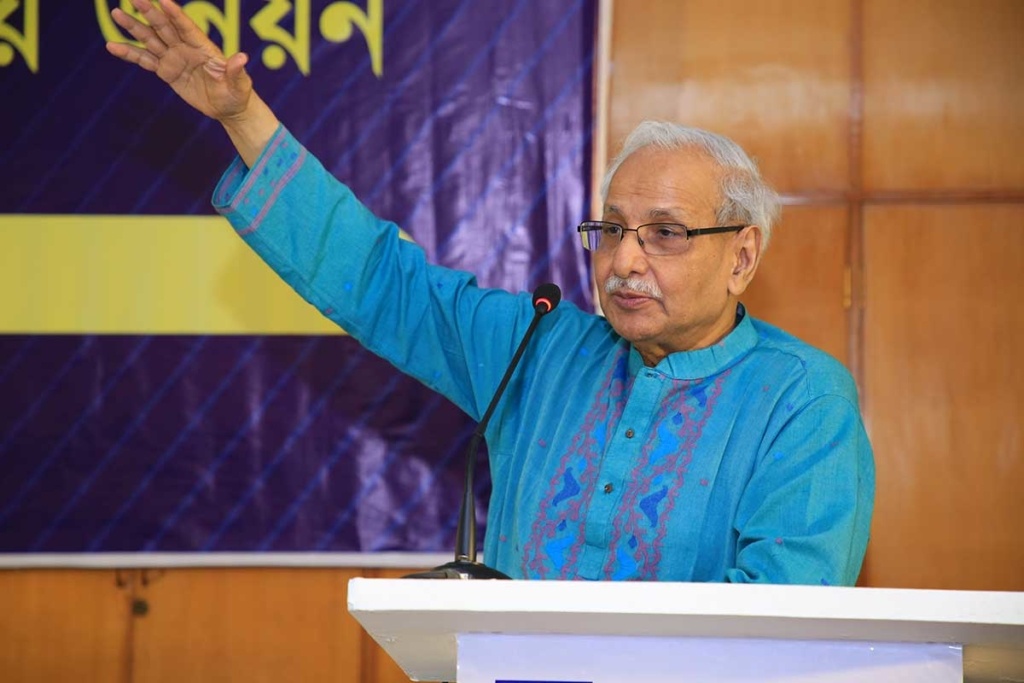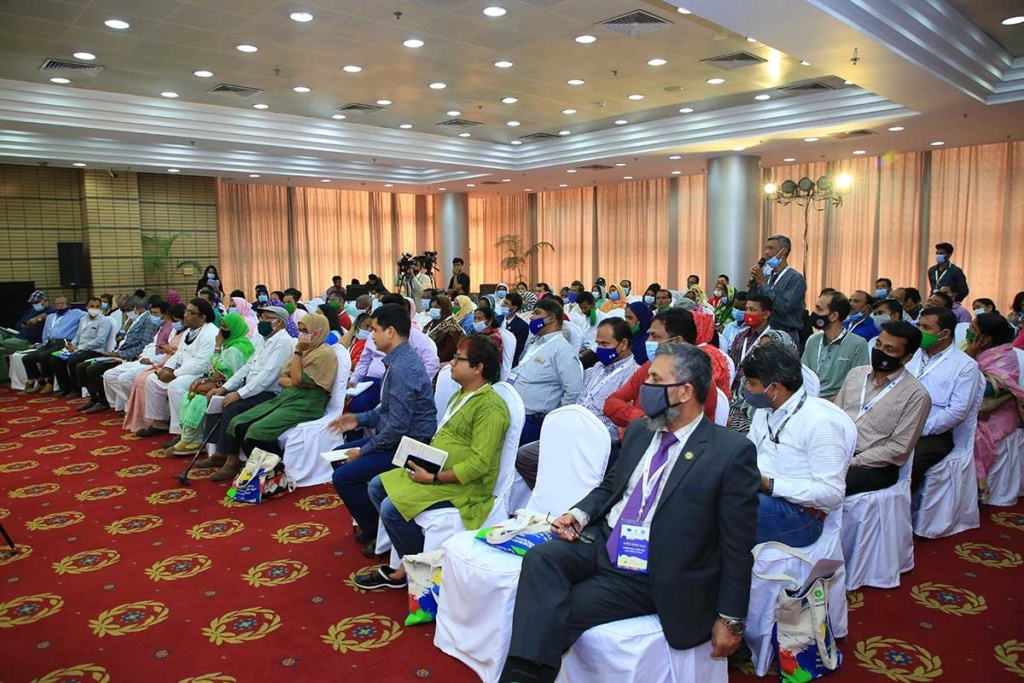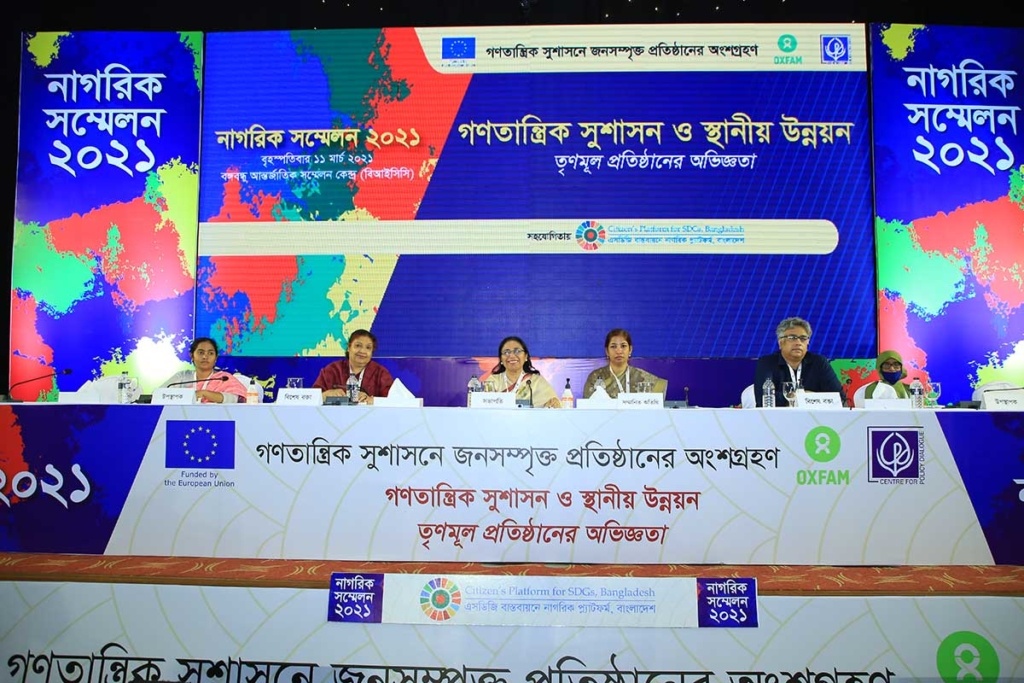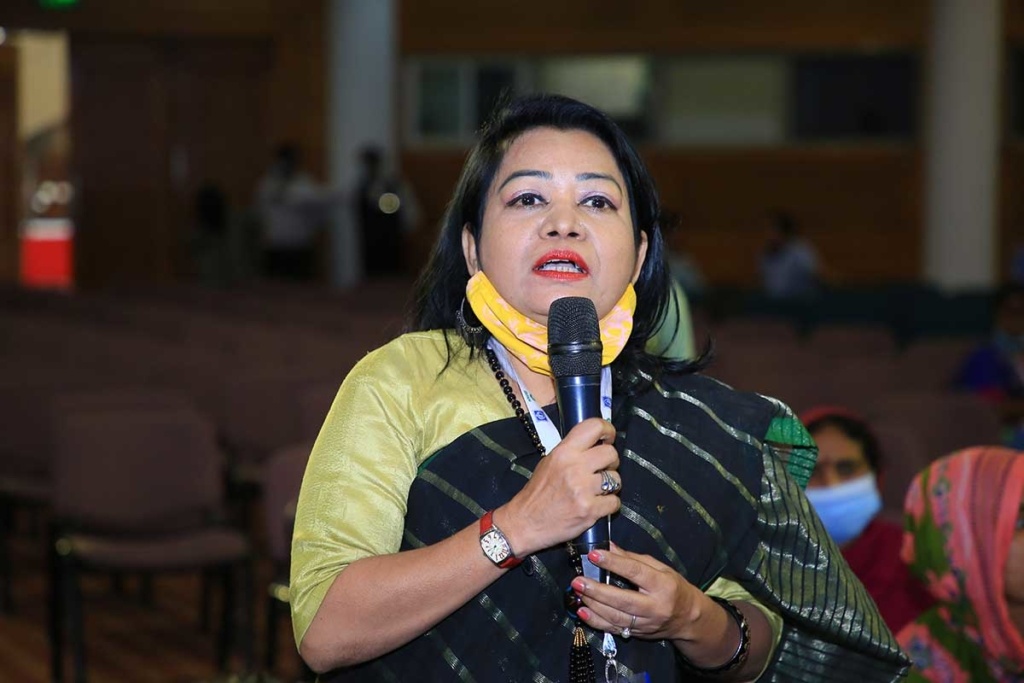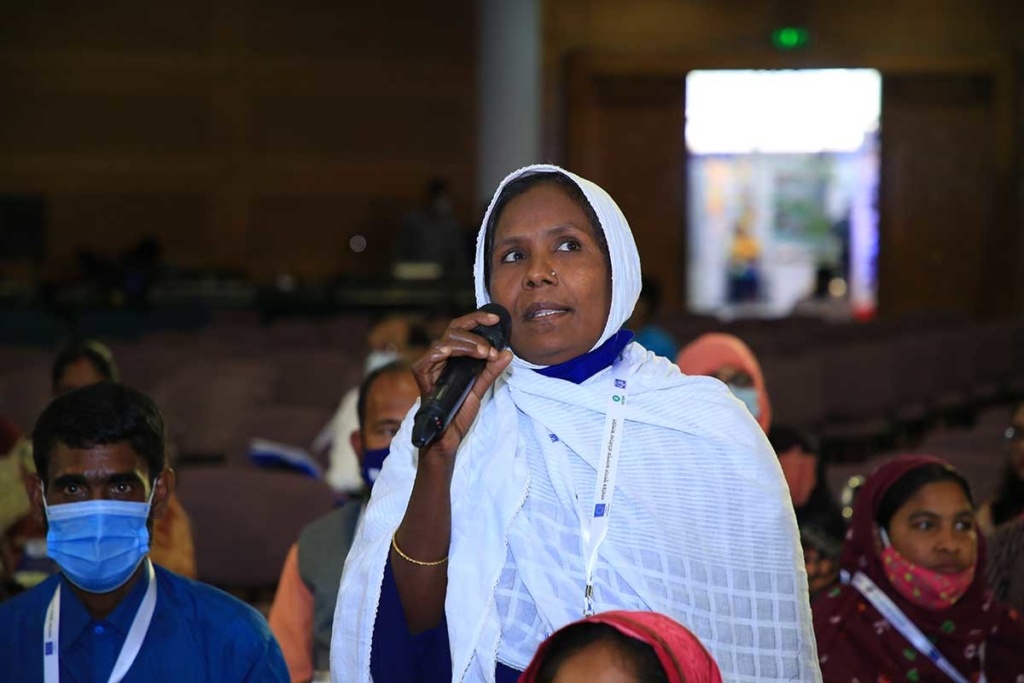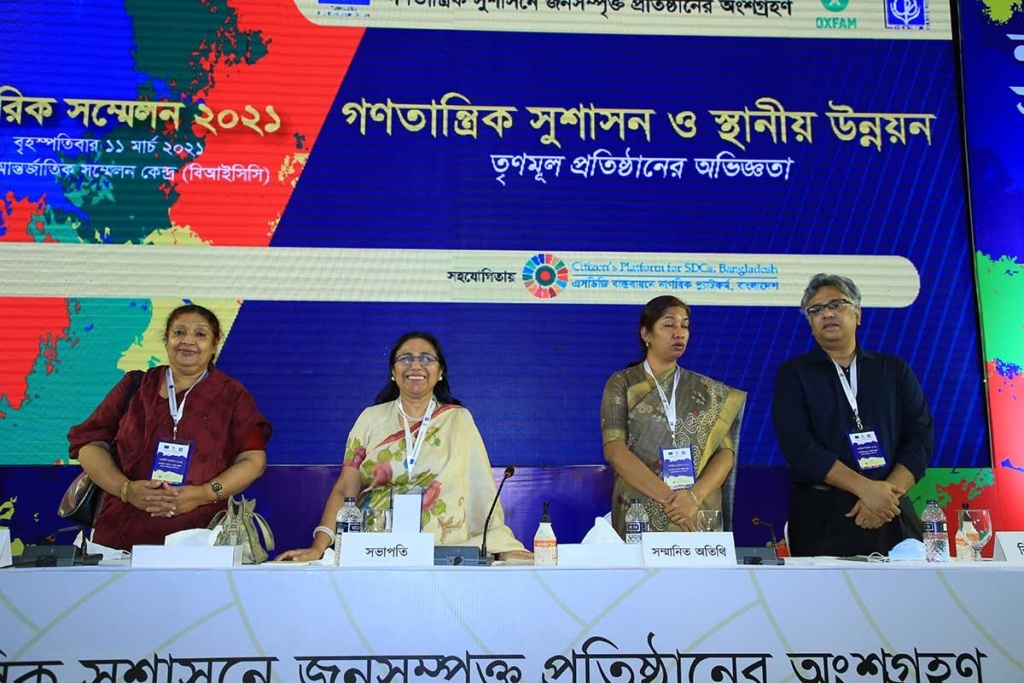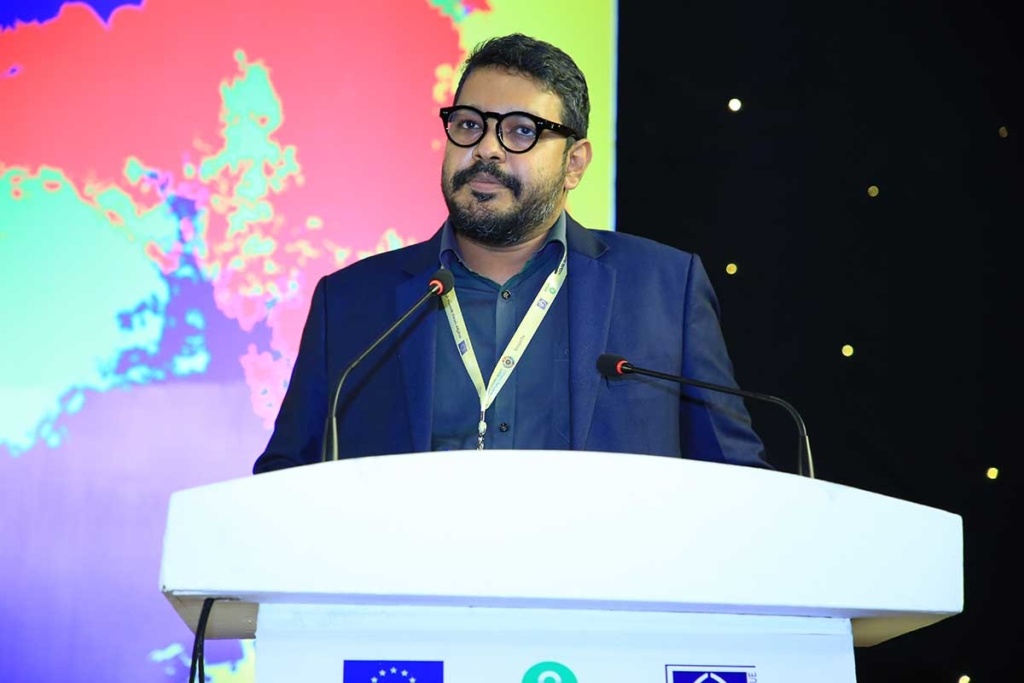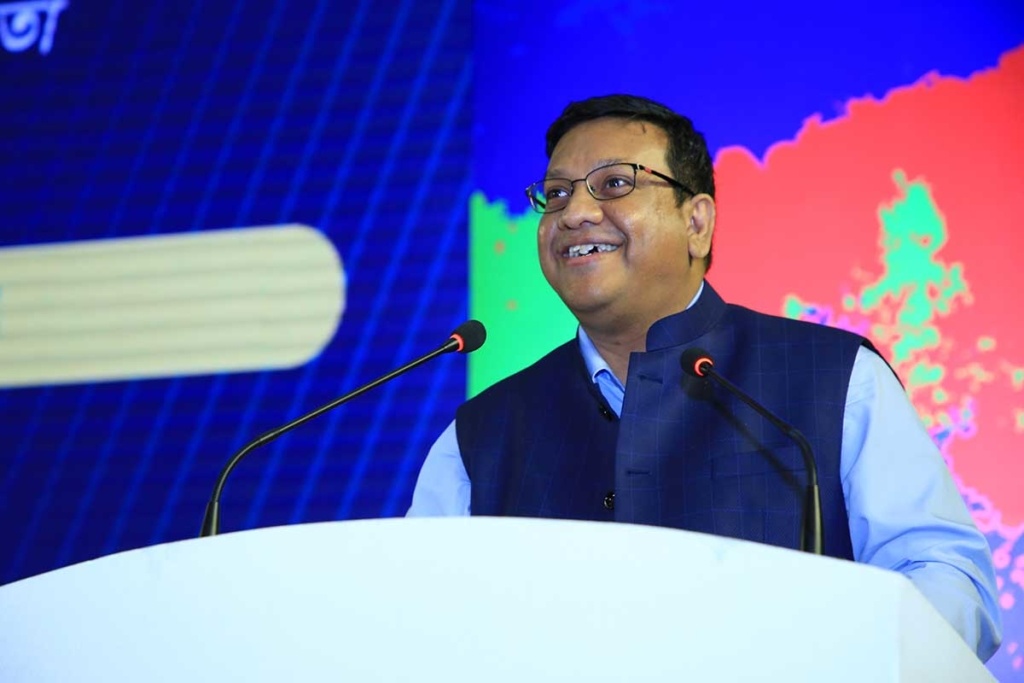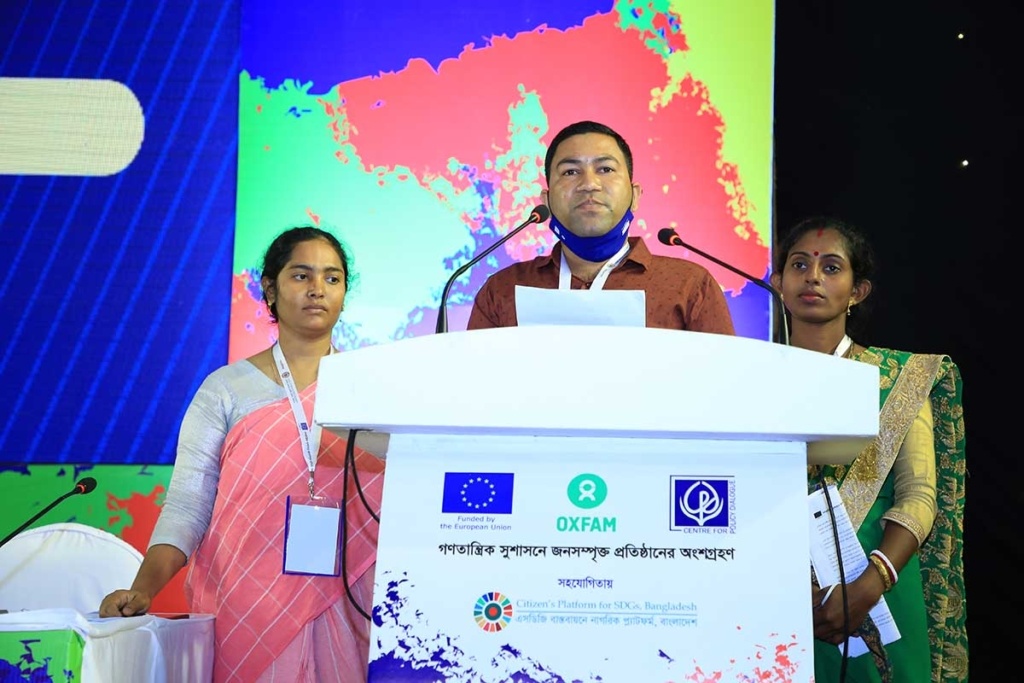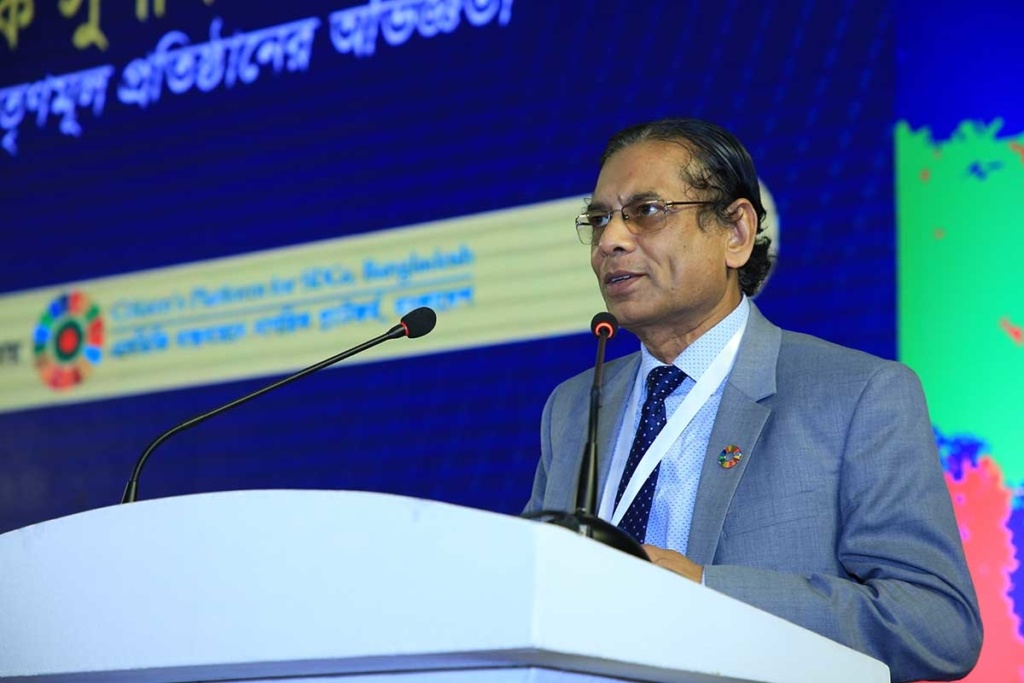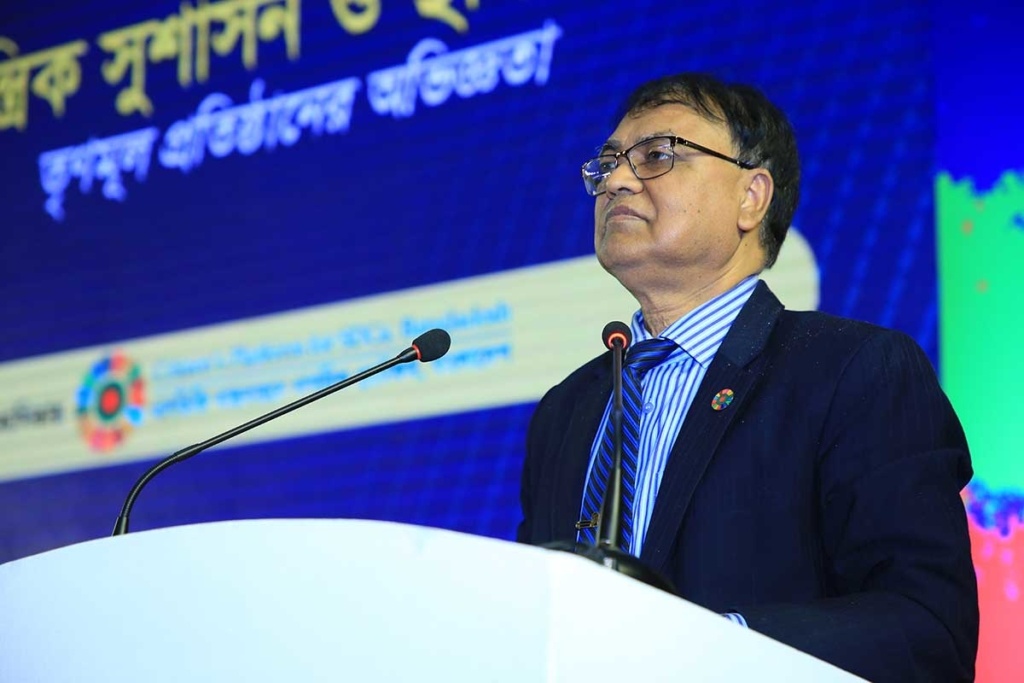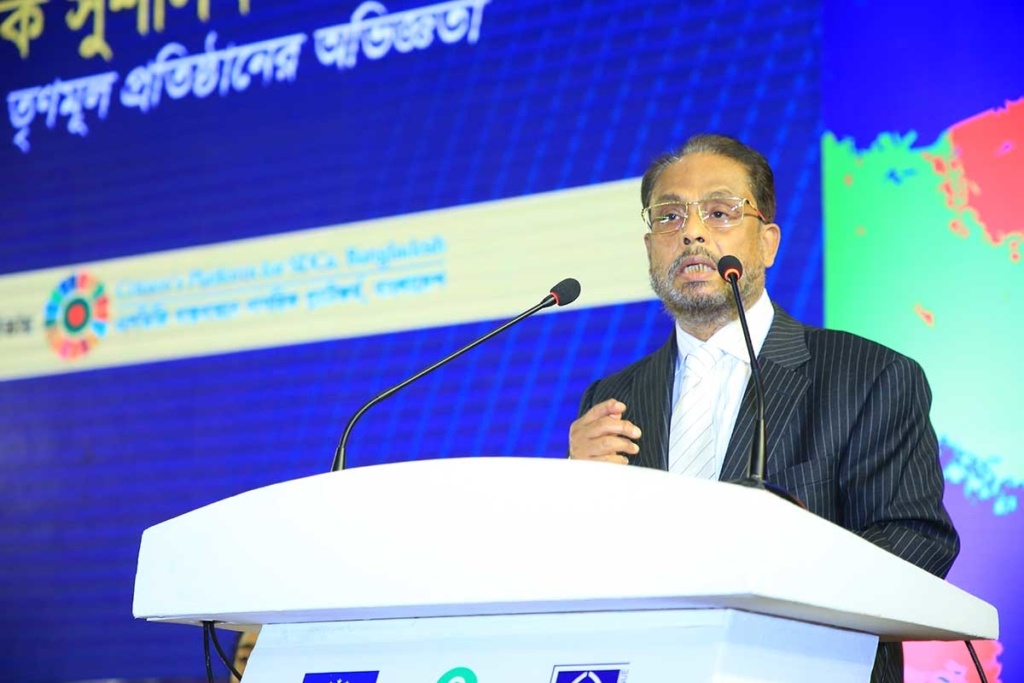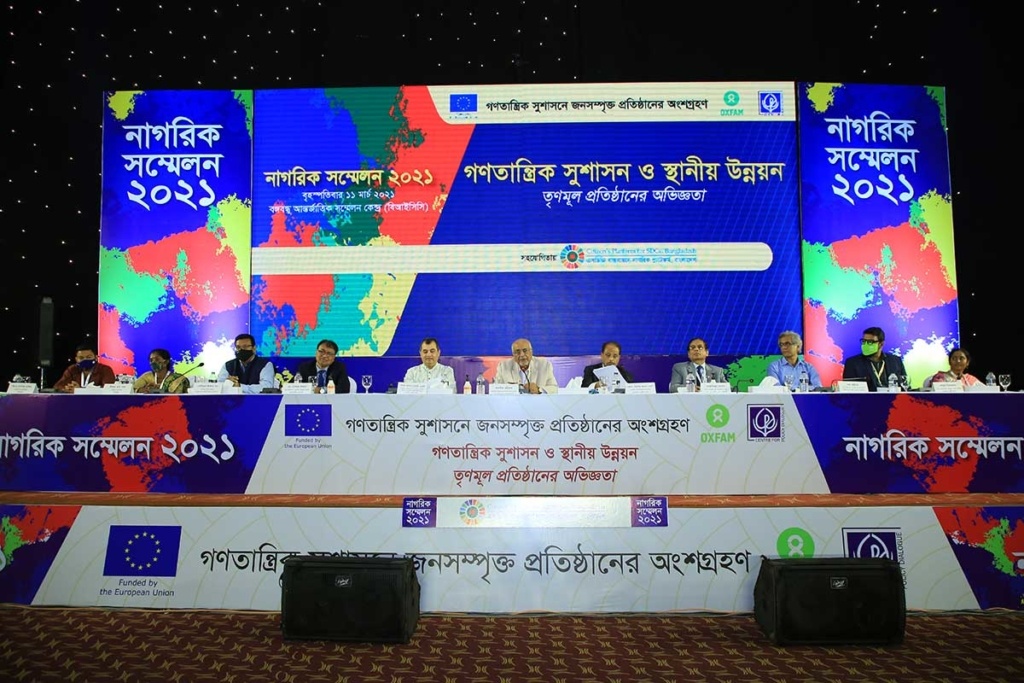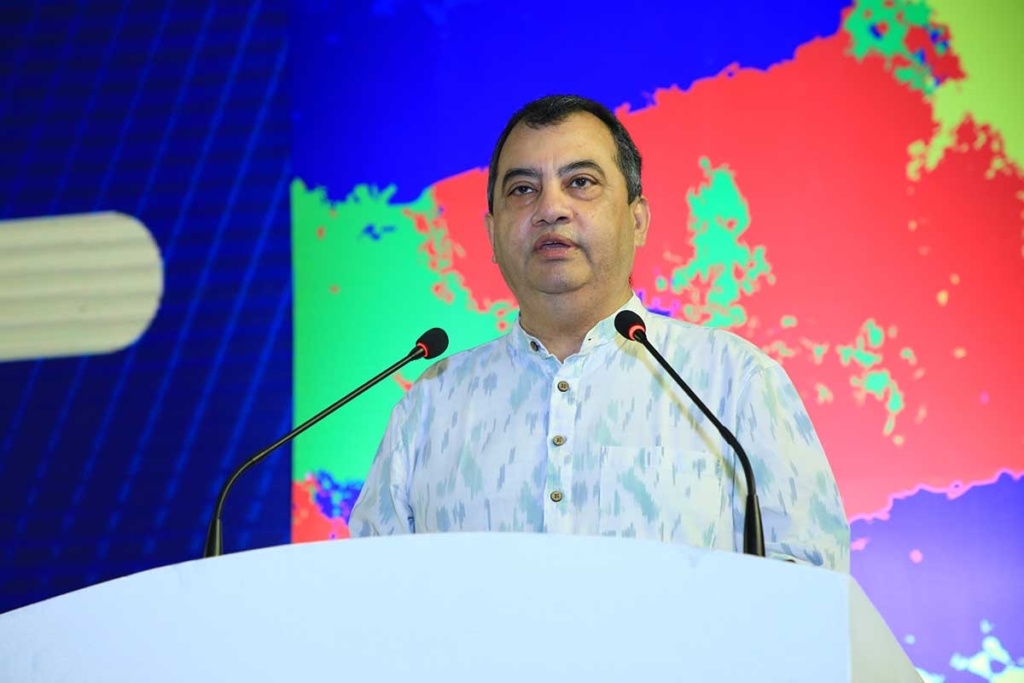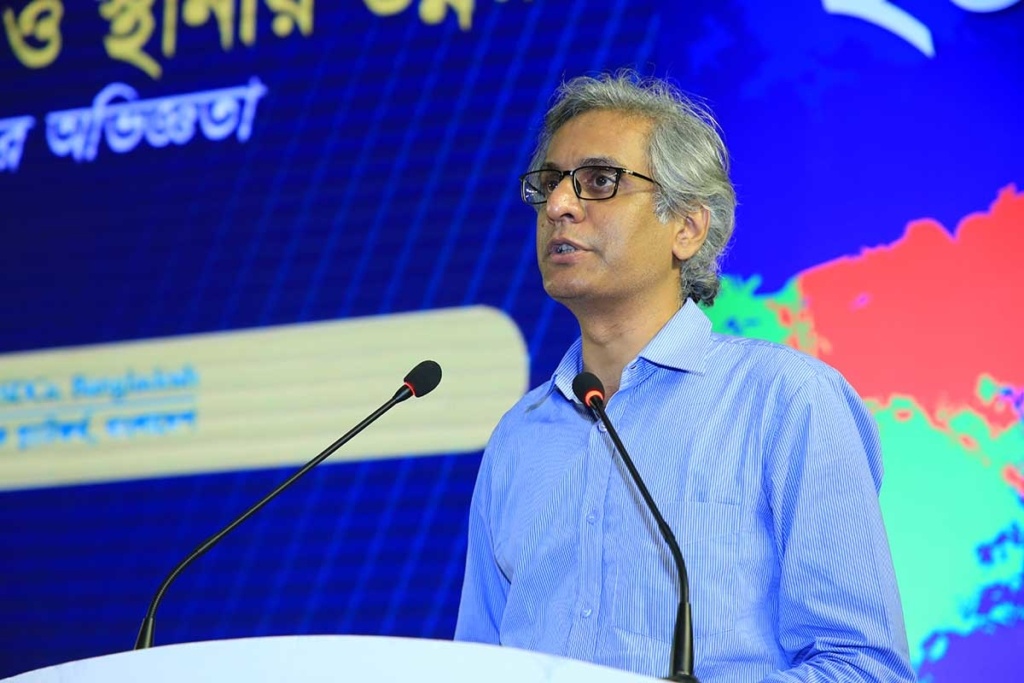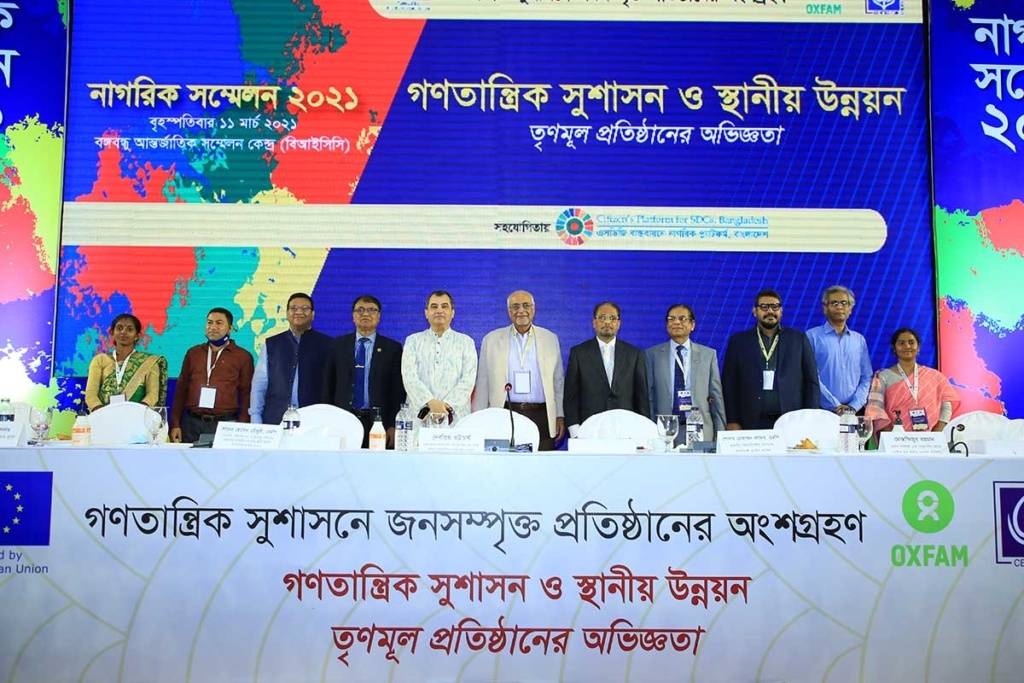
The Centre for Policy Dialogue (CPD) and Oxfam in Bangladesh have been implementing a project titled ‘Enhancing the participation of community-based organizations (CBOs) and civil society organizations (CSOs) in democratic governance in Bangladesh’ with support from the European Union in Bangladesh. The motivation driving the project activities is to strengthen Sustainable Development Goals (SDGs) localisation in the Bangladesh context. To highlight project activities and bring together partners from project implementation areas for exchange of ideas, the CPD and Oxfam in Bangladesh organised a Conference titled Democratic Governance and Local Development: Experience from Grassroots Citizens Organisations, which was held on Thursday, 11 March 2021 at the Bangabandhu International Conference Center (BICC), Agargaon, Dhaka. The Conference was organised in association with the Citizen’s Platform for SDGs, Bangladesh.
Transparency and accountability in public decision-making are key to ensuring that efforts at implementing the SDGs deliver the expected results. In this backdrop, it is critically important that the voices of the people, especially the marginalised, the women and the other left behind groups, are being heard and actions taken accordingly. However, oftentimes, it is seen that the demands of the marginalised groups remain unaddressed and their expectations are not reflected in national policies. There is, thus, an urgent need for participatory governance which will ensure meaningful participation of grassroots people in decision making and implementation of the SDGs at local levels.
As part of this project, the CPD and Oxfam in Bangladesh have been carrying out a number of activities to strengthen voice of the marginalised, promotion of accountability and delivery of the SDGs at the local level over the past three years (2018-2021). These activities included; organising dialogues with participation of representatives of local level administration and service providers, local elected bodies and CBOs, NGOs and grassroots organisations. The activities were carried out in 13 most geographically remote, natural disaster prone and economically disadvantaged Upazilas of Bangladesh. A social audit tool was developed to hold service providers accountable to citizens. Training sessions were organised to equip CBO groups to make use of this tool. A number of research studies were carried out to flag issues of importance to marginalised groups for attention of policymakers.
The Chief Guest at the Introductory Session, Mr Md. Tajul Islam, MP, Hon’ble Minister for Local Government, Rural Development and Co-operatives, Government of Bangladesh, stated that “It will not be possible to attain the aspirations of being a developed country by 2041 without collaborative efforts between local level government institutions and delivery agencies and the citizens. Union Parishads, Zila Parishads, Pourosovas and City Corporations are already empowered to engage with citizens in a proactive manner and in various ways”. The Special Guest at the session, H E Ms Rensje Teerink, Ambassador and the Head of EU Delegation to Bangladesh observed, “This project has enjoyed continuing support from the EU and it is worthy of support because project activities operate at the crucial intersection of democratic participation, good governance and development practice.” Special Speaker Professor Rehman Sobhan, Chairman, CPD urged the Minister to monitor two areas: whether or not the local government representatives are delivering the public services as is expected of them; and what progress is being made in meeting the SDGs at the local level.” Dr Debapriya Bhattacharya, Team Leader of the Project, Distinguished Fellow, CPD and Convenor, Citizen’s Platform for SDGs, Bangladesh Chaired the session. Dr Dipankar Datta, Country Director, Oxfam in Bangladesh; Dr Fahmida Khatun, Executive Director, CPD and Ms Lilian Mercado, Regional Director for Asia, Oxfam International delivered the introductory remarks. Professor Mustafizur Rahman, Lead Researcher and Distinguished Fellow, CPD made the keynote presentation at the session. The three CBO representatives; Ms Farida Begum, CBO leader, Dimla, Nilphamari Mr A S M Asad, Member of District Network, Nikli, Kishorgonj and Ms Fetema Begom, Chairperson, Kornofuli CBO & District Network Sandwip, Chittagong shared their experience of involvement with project activities.
Special Guest at the Wrap-up Session, Mr G M Quader, MP, Hon’ble Deputy Leader of the Opposition, Bangladesh Parliament said that, “Effective public service delivery at the local level is not possible for the government and relevant institutions on their own; participation of the citizens of the locality is crucially important in this context.” Taking part at the Conference as Special Guest, Mr Saber Hossain Chowdhury, MP, Chairman, Parliamentary Standing Committee on Ministry of Environment, Forest and Climate Change and Former Deputy Minister for Local Government, Rural Development & Cooperatives stated that, “This initiative by the CPD, Oxfam in Bangladesh and the EU has created a platform for citizens to speak their mind. Now it is our responsibility to take their voice to the National Parliament and have a discussion around the issues that were raised by the citizens.” Mr Md Rashadul Islam, Director General, NGO Affairs Bureau, Prime Minister’s Office noted as Guest of Honour at the Session, “The NGOs and CSOs are playing a vital role in Bangladesh’s development. The recommendations made here will help the government achieve its targets.” Mr Towfiqul Islam Khan, Senior Research Fellow, CPD summarised the rich discussion that took place at three parallel sessions which focused on three important issues: Food Relief, Agricultural Loan and Youth Employment. Mr Dhananjayan Sriskandarajah, CEO, Oxfam Great Britain also spoke at the Session. Mr G M Faitul Hafiz, Community Volunteer, Jamalpur, Ms Bithika Rani Mondol, CBO President, Satkhira and Ms Momena Khatun, Community Volunteer, Satkhira made presentation from recommendation from Citizens’ Charter. Chair of the Session, Dr Debapriya Bhattacharya, made the closing remarks by highlighting the key takeaway from the event.
The Conference was an opportunity to share experiences of grassroots organisations in view of activities implemented under the project. It is hoped that the discussions at the Conference will contribute to strengthening the voice of grassroots CBOs and CSOs and secure their interest in the design and implementation of the 2030 Agenda at the local level. The three parallel sessions of the day-long Conference focused on delivery of public services in view of ‘Food Relief’, ‘Agricultural Loan’ and ‘Youth Employment (Credit and Training)’ programmes of the Government of Bangladesh. Based on field level experience and recommendations carrying out of discussions at the parallel sessions, a Citizen’s Charter was adopted at the Closing Plenary of the Conference. Six issue briefs and a ‘Joint Action Mechanism’ were also launched during the Conference.
A total of around six hundred people joined the Conference. Of these, about three hundred and fifty local level CBOs and CSOs representatives from the project implementation areas took part in the Conference. High-level policymakers, political leaders, government officials from SDG-related ministries, academics and experts, local administrators, development practitioners, social activists, international development partners, private sector leaders and representatives of the media also attended the Conference.


